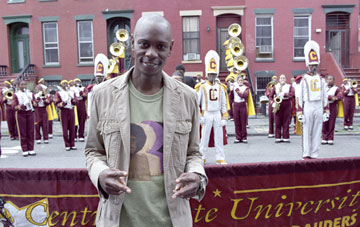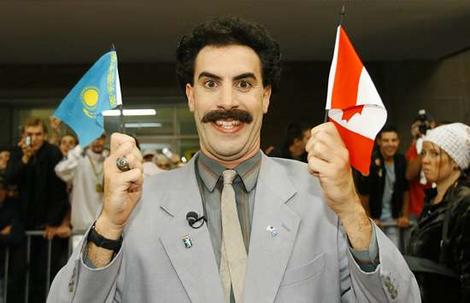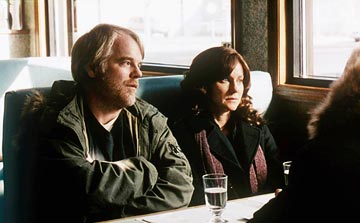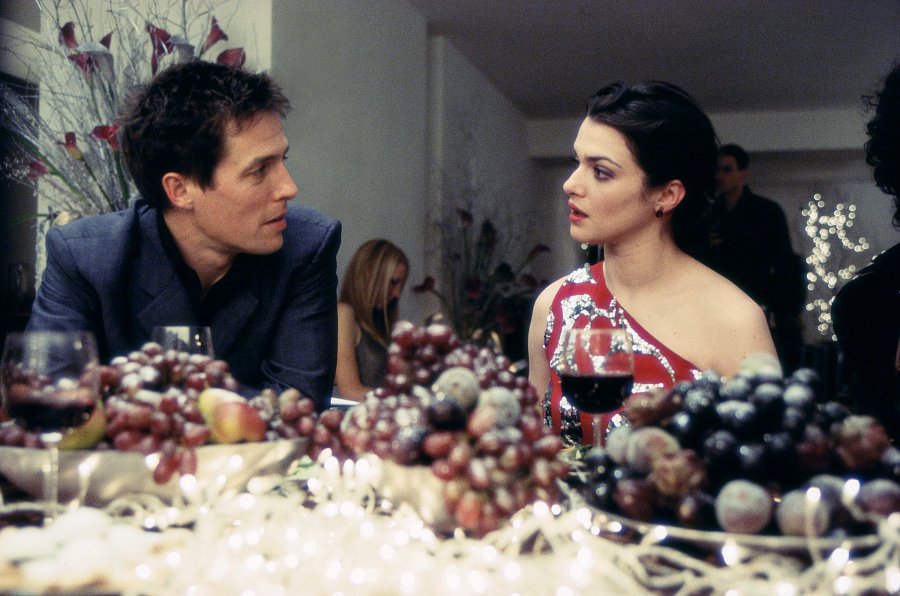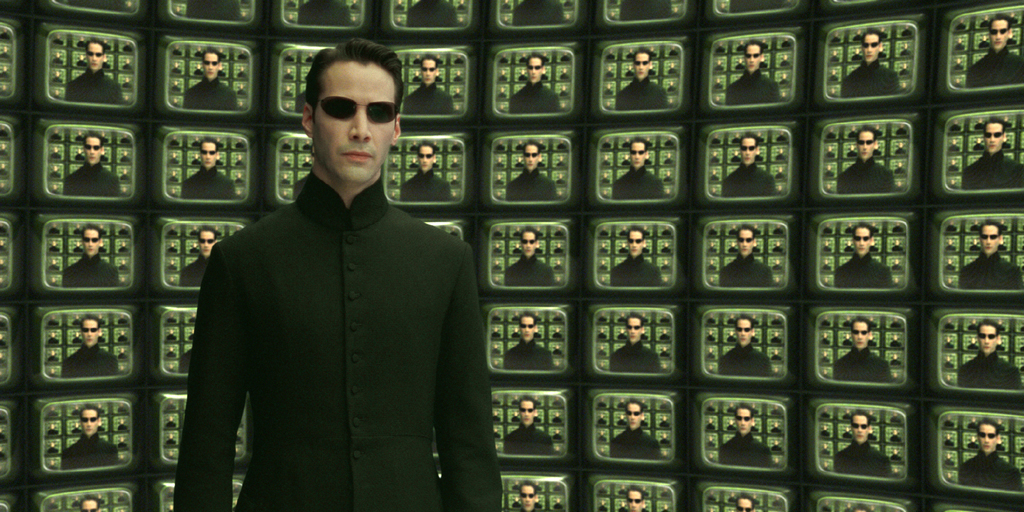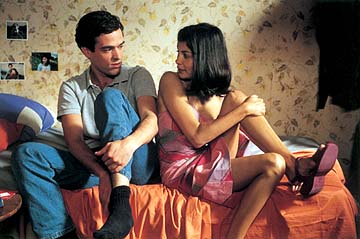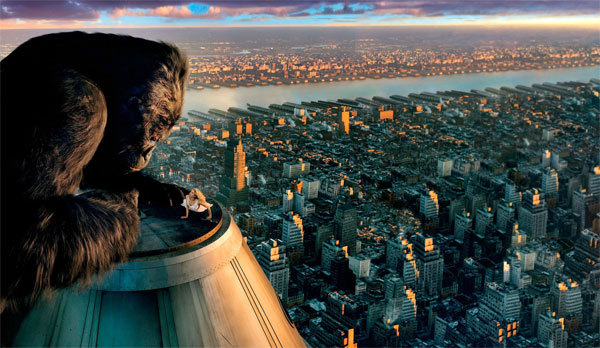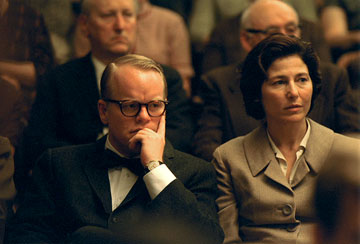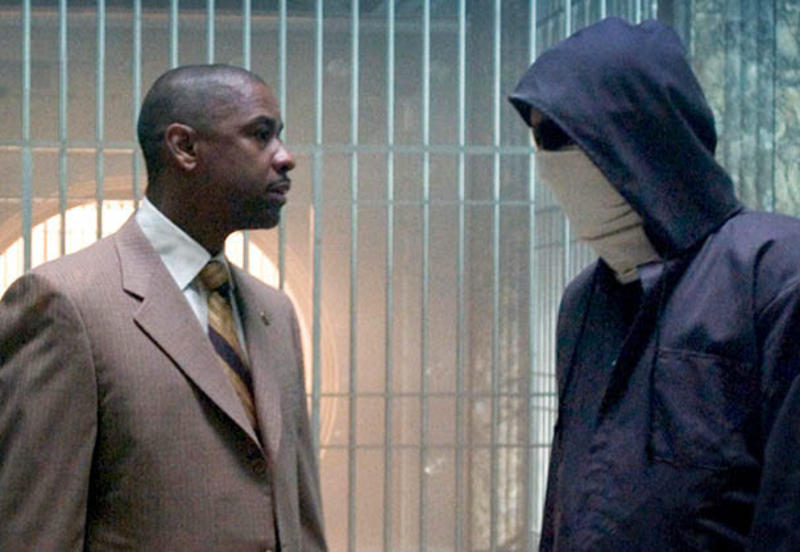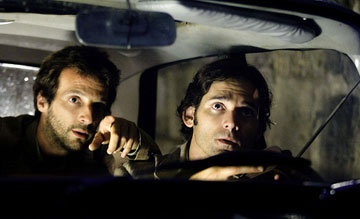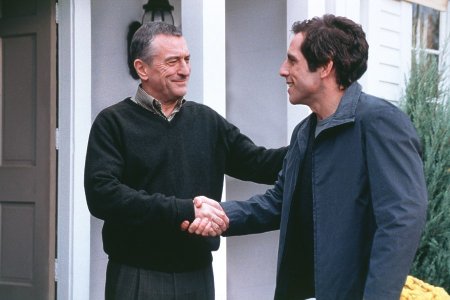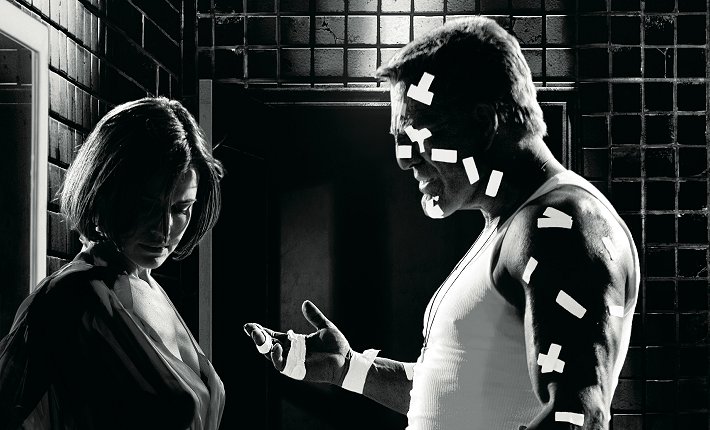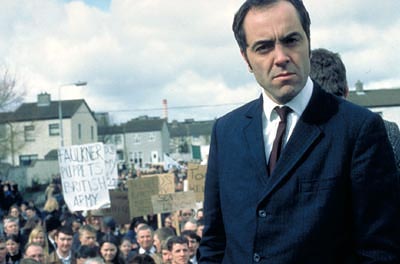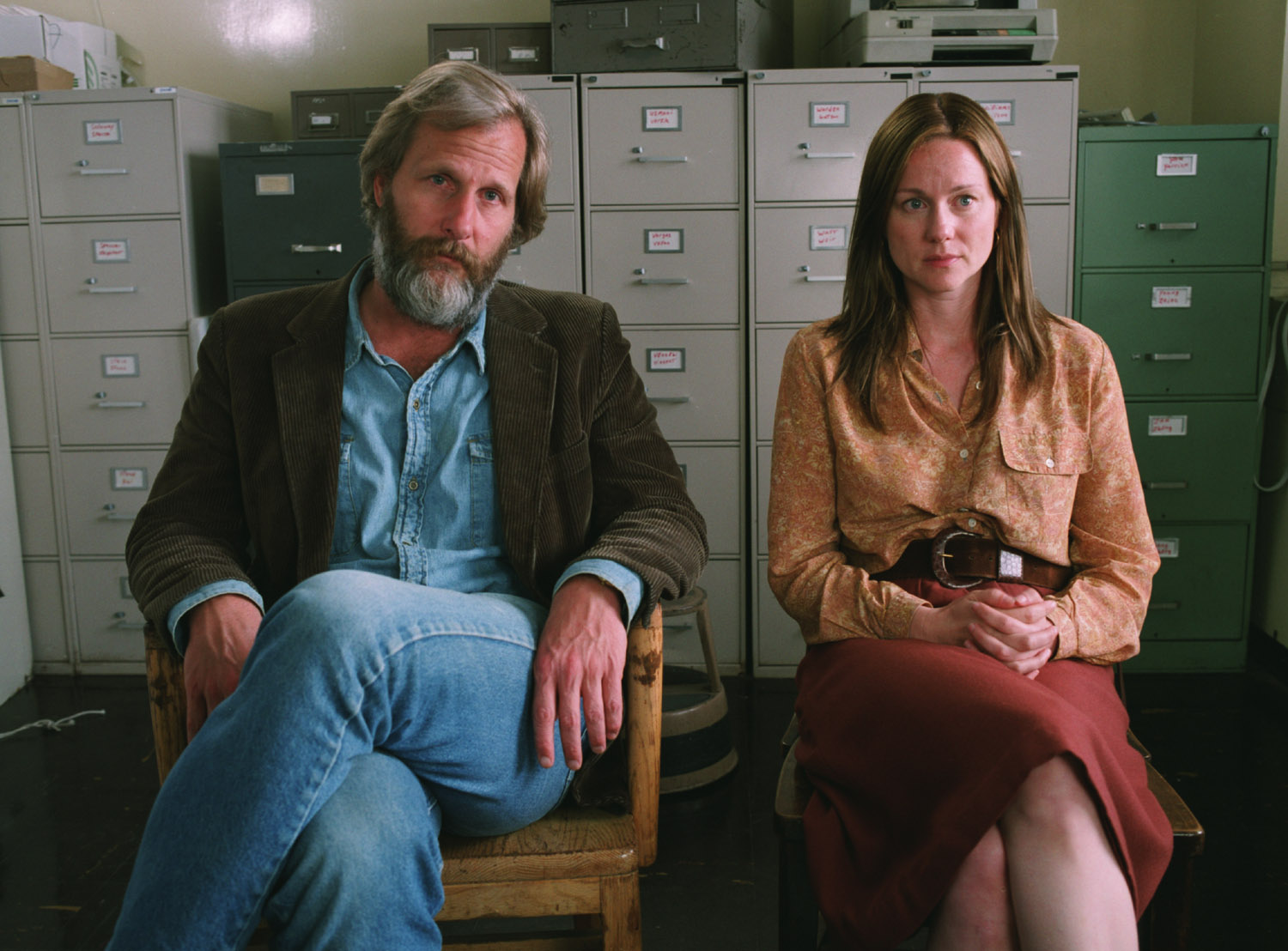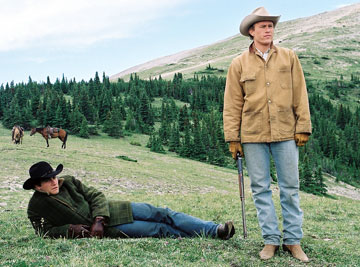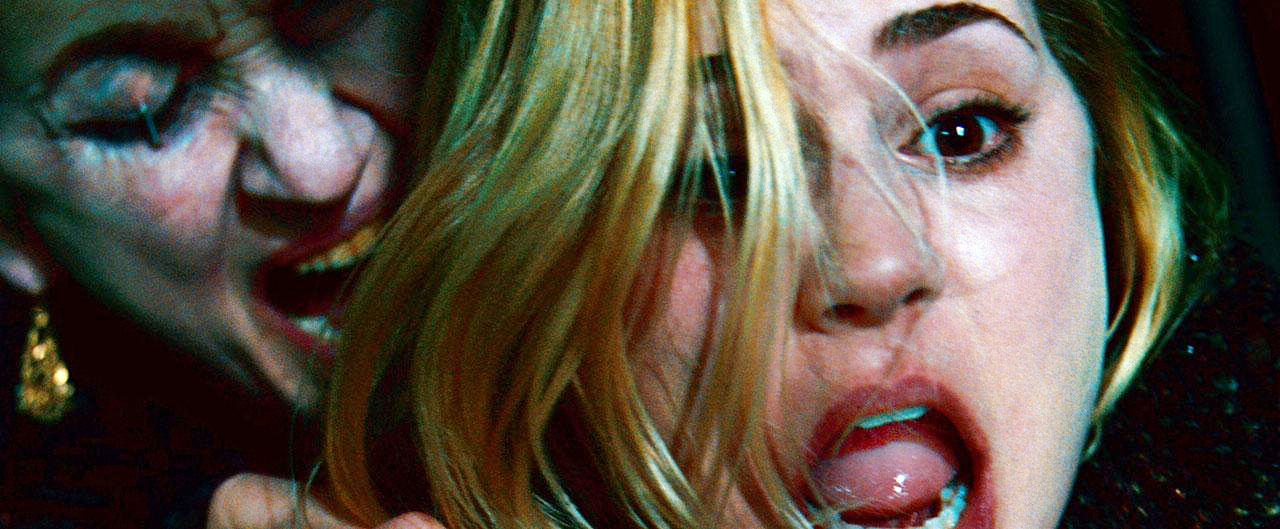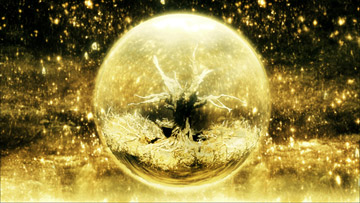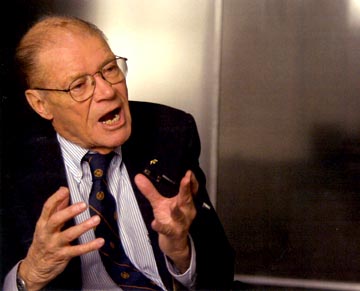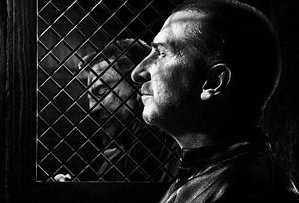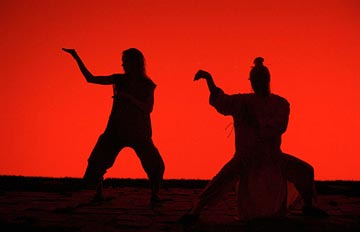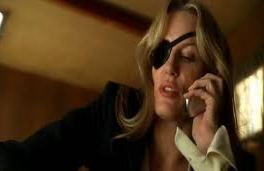Hey, remember 2015? Syrian refugees and the Iran nuclear deal, the Paris attacks and the Paris accords. Taylor Swift had bad blood and The Weeknd couldn’t feel his face. Donald Trump was leading in all the polls, but, lolz, we all knew wiser GOP heads would prevail in the end. And, hey — while it wasn’t a great film year by any means — some movies came out too!
One of the reasons I’ve been thinking about getting back on the horse around here is that I never did write up the 2015 movie list, which seems a shame after fifteen years running. (The 2014 list is still on the front page!) So, yeah, this is real late…but since I caught so many of these On Demand, I couldn’t have written this list up at the end of 2015 regardless. And besides, no matter how tardy I am in posting this each year, there’re always still a few more possible additions languishing unseen in the DVR and Amazon Prime queues — right now it’s Slow West and Chi-Raq on the slow burners. (I’ve also tried to watch Jupiter Ascending twice now, but haven’t made it past the first twenty minutes, right around the point Oscar Winner Eddie Redmayne starts doing his cut-rate Ming the Merciless bit.)
At any rate, of the films I did see, these below were my…
Top 25 Films of 2015
[2000/2001/2002/2003/2004/2005/2006/2007/
2008/2009/2010/2011/2012/2013/2014/The Oughts]
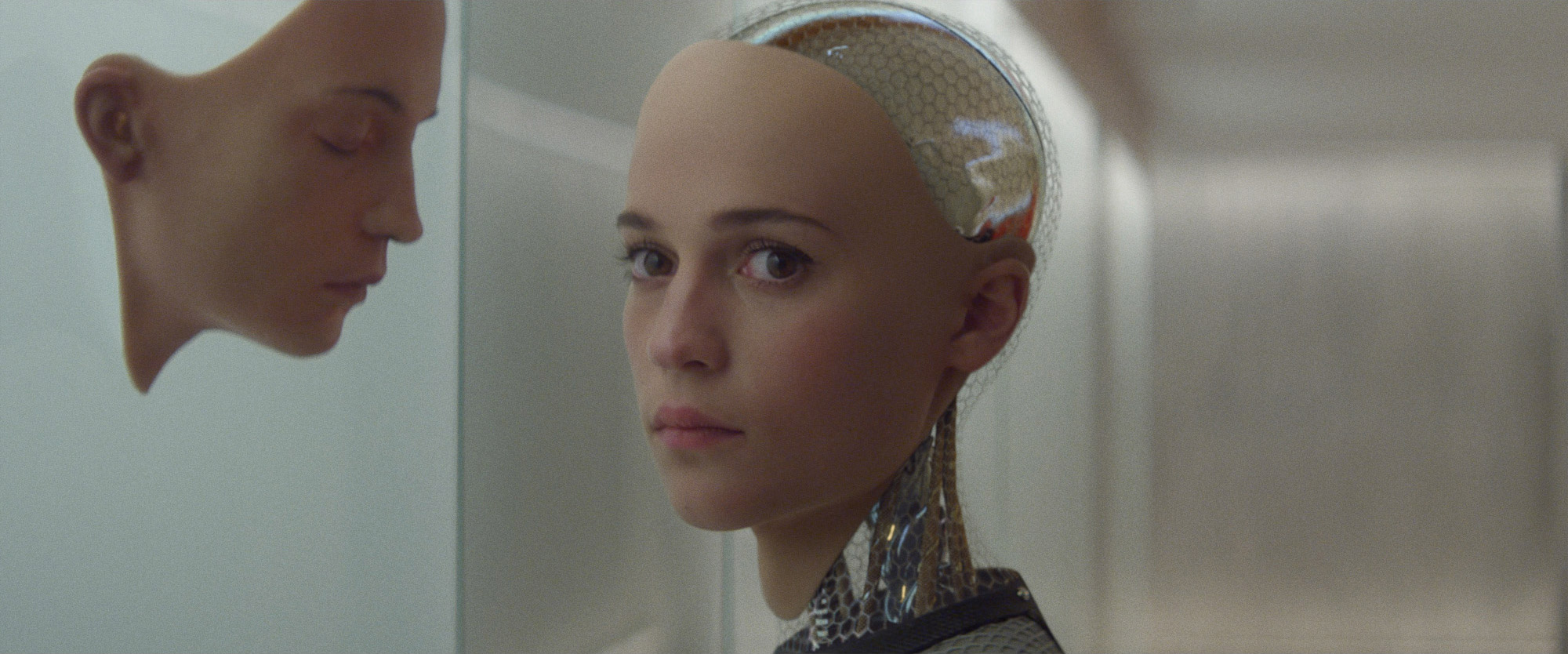 1. Ex Machina: Having already written a few worthy genre contenders like Sunshine and Dredd, The Beach author Alex Garland put on the director’s hat and and tore up the 2015 dance floor with this perfectly contained sci-fi-noir. A wry amalgam of Isaac Asimov and James M. Cain, Ex Machina is smart all the way through — I thought crowdsourcing AI was a particularly clever touch, until we actually tried to do it this year — and it possesses a secret weapon in Oscar Isaac’s amusingly dickish fratbro billionaire. In a can-you-top-this era of CGI excess, Ex Machina is a valuable reminder that sometimes the most satisfying science fiction tale is simply a small story told well.
1. Ex Machina: Having already written a few worthy genre contenders like Sunshine and Dredd, The Beach author Alex Garland put on the director’s hat and and tore up the 2015 dance floor with this perfectly contained sci-fi-noir. A wry amalgam of Isaac Asimov and James M. Cain, Ex Machina is smart all the way through — I thought crowdsourcing AI was a particularly clever touch, until we actually tried to do it this year — and it possesses a secret weapon in Oscar Isaac’s amusingly dickish fratbro billionaire. In a can-you-top-this era of CGI excess, Ex Machina is a valuable reminder that sometimes the most satisfying science fiction tale is simply a small story told well.
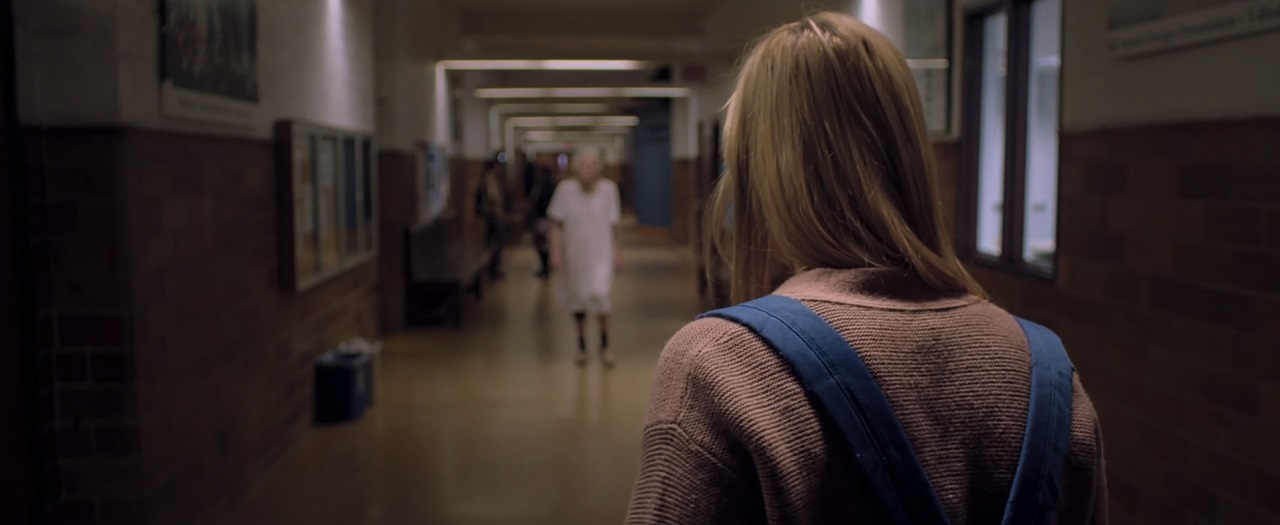 2. It Follows: Speaking of simple ideas done well, how about David Robert Mitchell’s It Follows? Granted I don’t watch much horror anymore — tho’ I’m looking forward to catching The Witch sometime soon — but this was the first movie in ages that had me unsettled for a good while afterward, suspiciously eyeing slow-moving randoms on the street and keeping an eye to an exit strategy.
2. It Follows: Speaking of simple ideas done well, how about David Robert Mitchell’s It Follows? Granted I don’t watch much horror anymore — tho’ I’m looking forward to catching The Witch sometime soon — but this was the first movie in ages that had me unsettled for a good while afterward, suspiciously eyeing slow-moving randoms on the street and keeping an eye to an exit strategy.
It Follows gets under your skin by making the most of a basic premise that’s been a subtext of the horror genre for years (and one that can carry all kinds of allegorical weight as needed, from aging to adulthood to AIDS): have sex and you’re a goner. And like the original Blob — or Death, for that matter — the creature may move slow here, but it is inexorable. Quentin Tarantino has a point about the problems with the goofy third act (tho’ he doesn’t really have a leg to stand on this year — see below), but man is this film creepy. Extra points for the very John Carpenter-y score by Disasterpeace.
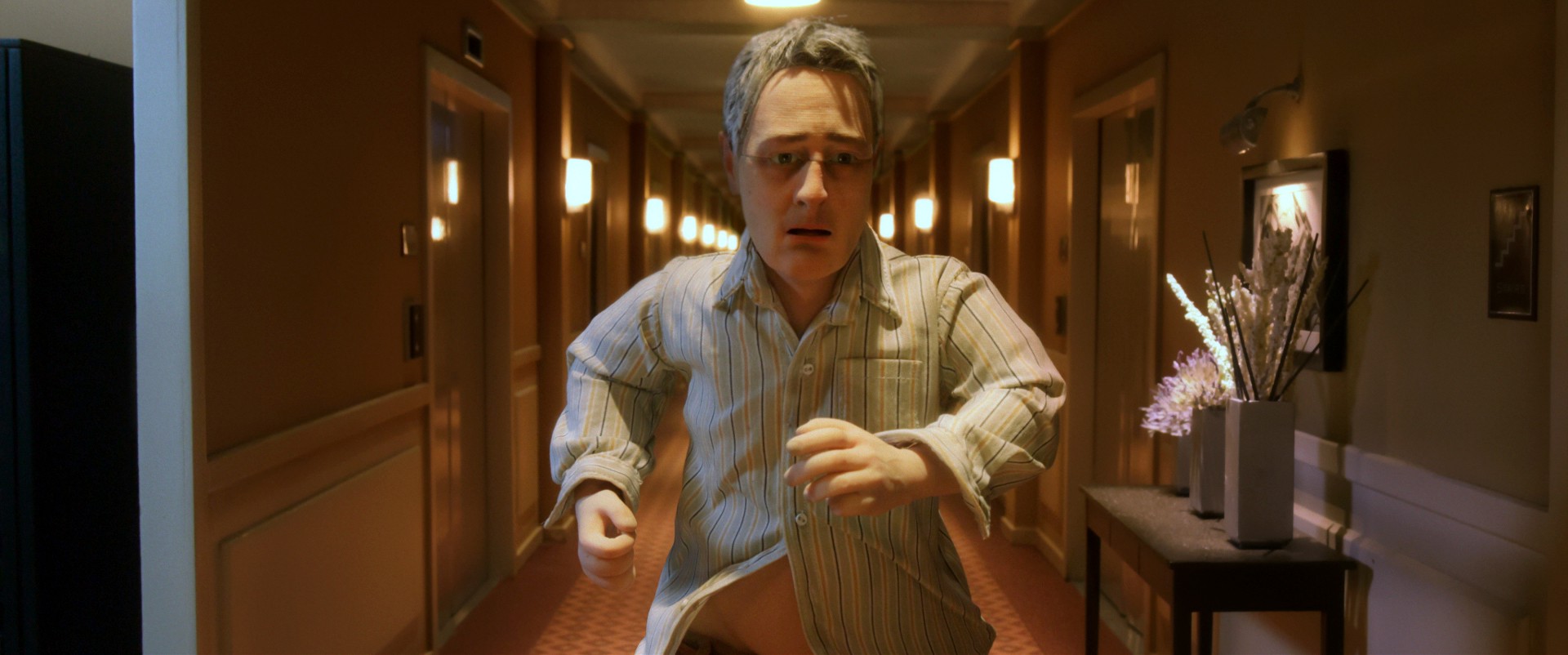 3. Anomalisa: If there’s a fear more primal than the slow-stalking beast of It Follows, perhaps it’s the one haunting this business trip to the solipsistic hellscape of stop-motion Cincinnati: Forget not escaping Death for a second, you’re never going to escape you. Without any actors gracing the screen (and Tom Noonan taking up the bulk of the characters), Anomalisa is a bracing shot of distilled Charlie Kaufman — mournful misanthropy with plenty of anxiety and a dash of sweetness, coming right up — and seems like the movie John Cusack’s puppeteer was working toward in Being John Malkovich.
3. Anomalisa: If there’s a fear more primal than the slow-stalking beast of It Follows, perhaps it’s the one haunting this business trip to the solipsistic hellscape of stop-motion Cincinnati: Forget not escaping Death for a second, you’re never going to escape you. Without any actors gracing the screen (and Tom Noonan taking up the bulk of the characters), Anomalisa is a bracing shot of distilled Charlie Kaufman — mournful misanthropy with plenty of anxiety and a dash of sweetness, coming right up — and seems like the movie John Cusack’s puppeteer was working toward in Being John Malkovich.
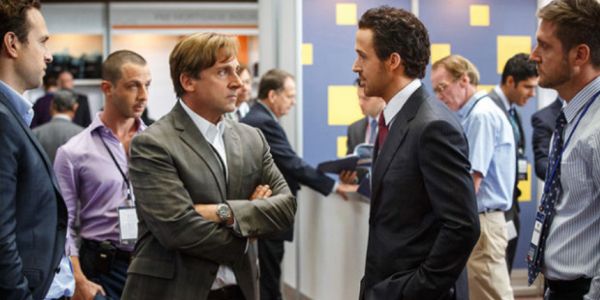 4. The Big Short: The best of this year’s Oscar contenders, Adam McKay’s chronicle of the traders who bet big on America’s financial collapse succeeds in being both informational and, often, quite funny. Even better, McKay vastly improves on the source material by infusing it with no small amount of righteous anger. Michael Lewis is compulsively readable, but he tends to flinch from interrogating his class, and so you end up with books like The Big Short, which are, in essence: “Look at these smart guys who beat the system! (never mind that the system was corrupt to the core.)” [Or, for that matter, The Blind Side: “Look at these great rich white people who took in an at-risk black youth! (never mind they only did it because he was a football prodigy.)”] McKay’s film restores the balance by re-emphasizing that the mortgage meltdown was about more than just hubris and assholery — it was systemic corruption all the way down. And yet, nobody went to jail — The Big Short has the confidence to let that last laugh curdle.
4. The Big Short: The best of this year’s Oscar contenders, Adam McKay’s chronicle of the traders who bet big on America’s financial collapse succeeds in being both informational and, often, quite funny. Even better, McKay vastly improves on the source material by infusing it with no small amount of righteous anger. Michael Lewis is compulsively readable, but he tends to flinch from interrogating his class, and so you end up with books like The Big Short, which are, in essence: “Look at these smart guys who beat the system! (never mind that the system was corrupt to the core.)” [Or, for that matter, The Blind Side: “Look at these great rich white people who took in an at-risk black youth! (never mind they only did it because he was a football prodigy.)”] McKay’s film restores the balance by re-emphasizing that the mortgage meltdown was about more than just hubris and assholery — it was systemic corruption all the way down. And yet, nobody went to jail — The Big Short has the confidence to let that last laugh curdle.
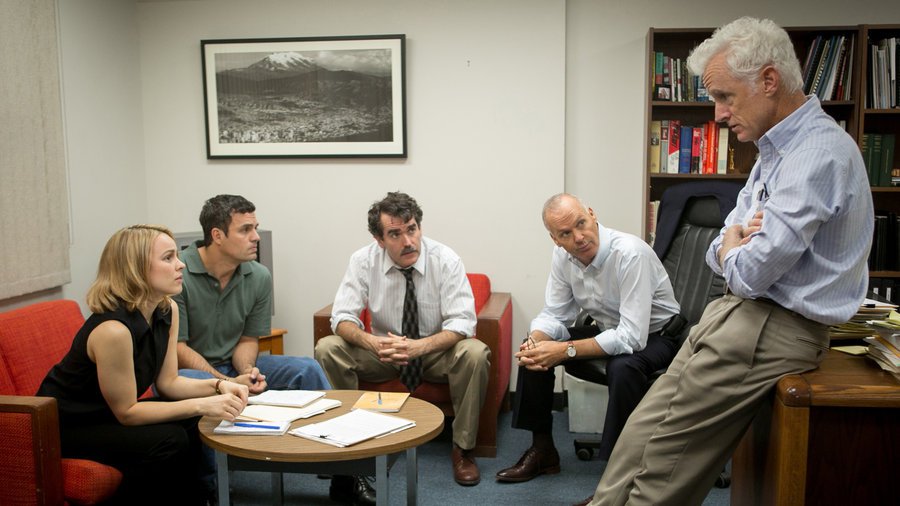 5. Spotlight: Speaking of which, this year’s Oscar winner could stand to have a few more dollops of righteous anger added to the mix as well. Instead, Spotlight chooses to tell this incendiary story of cover-up and corruption in the Catholic Church as a journalistic procedural. So, while it’s all very sober and well-made, the overall experience feels akin to watching Law and Order re-runs. (While it’s a subplot throughout, I also wish they’d done more with how Michael Keaton et al missed this story for so long. There’s a come-to-Jesus moment near the end that felt to me like a big fat ¯\_(ツ)_/¯ before getting back to the regularly scheduled media back-patting. The Church isn’t the only once-venerable institution crumbing from within these days.) I don’t want to be too down on Spotlight — I’m putting this at #4, after all — but it’s ultimately high-quality Oscar bait, and doesn’t feel like a movie we’ll be talking about much in years to come.
5. Spotlight: Speaking of which, this year’s Oscar winner could stand to have a few more dollops of righteous anger added to the mix as well. Instead, Spotlight chooses to tell this incendiary story of cover-up and corruption in the Catholic Church as a journalistic procedural. So, while it’s all very sober and well-made, the overall experience feels akin to watching Law and Order re-runs. (While it’s a subplot throughout, I also wish they’d done more with how Michael Keaton et al missed this story for so long. There’s a come-to-Jesus moment near the end that felt to me like a big fat ¯\_(ツ)_/¯ before getting back to the regularly scheduled media back-patting. The Church isn’t the only once-venerable institution crumbing from within these days.) I don’t want to be too down on Spotlight — I’m putting this at #4, after all — but it’s ultimately high-quality Oscar bait, and doesn’t feel like a movie we’ll be talking about much in years to come.
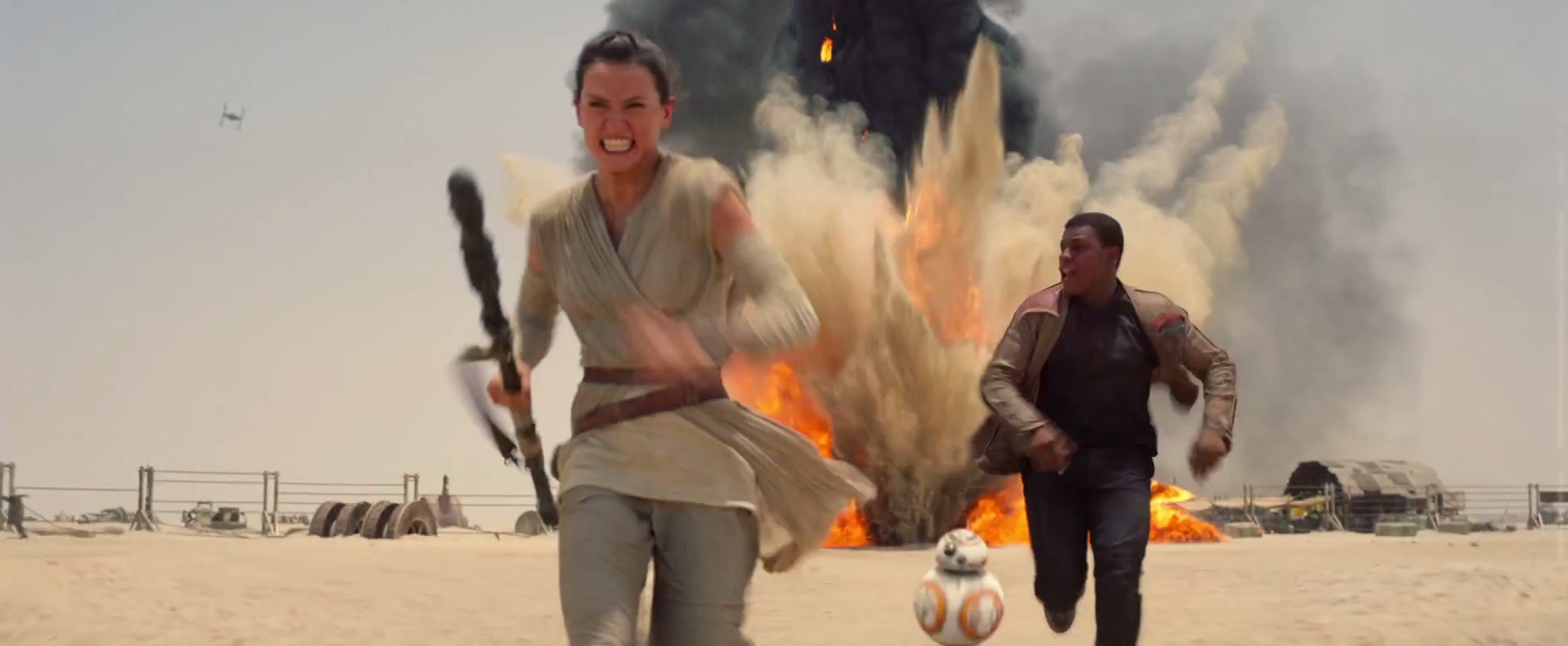 6. Star Wars: The Force Awakens: ZOMG Star Wars y’all! J.J. Abrams’ reboot of the original fanboy/tentpole universe has the benefit of great casting and instantly likeable characters in Daisy Ridley, John Boyega, Adam Driver, Oscar Isaac, and BB-8. This is also clearly a labor of love for Abrams — just look how he Wars-ed up Star Trek a few years ago. At the same time — and, to be fair, this becomes more pronounced after the first viewing — The Force Awakens also feels like an exceedingly cautious retread of the original trilogy at times, a sensation exacerbated by both too many unnecessary Chris Farley Show-style callbacks (hey, remember that thing? That was so cool! Here it is again!) and that ultra-stupid, basic-physics-defying Starkiller Base in the third act. (Seriously, do not get me ranting about Starkiller Base. It is a silly place.) Still, the important thing here is, after the prequel misfire, Star Wars feels back. Bring on Rogue One and VIII.
6. Star Wars: The Force Awakens: ZOMG Star Wars y’all! J.J. Abrams’ reboot of the original fanboy/tentpole universe has the benefit of great casting and instantly likeable characters in Daisy Ridley, John Boyega, Adam Driver, Oscar Isaac, and BB-8. This is also clearly a labor of love for Abrams — just look how he Wars-ed up Star Trek a few years ago. At the same time — and, to be fair, this becomes more pronounced after the first viewing — The Force Awakens also feels like an exceedingly cautious retread of the original trilogy at times, a sensation exacerbated by both too many unnecessary Chris Farley Show-style callbacks (hey, remember that thing? That was so cool! Here it is again!) and that ultra-stupid, basic-physics-defying Starkiller Base in the third act. (Seriously, do not get me ranting about Starkiller Base. It is a silly place.) Still, the important thing here is, after the prequel misfire, Star Wars feels back. Bring on Rogue One and VIII.
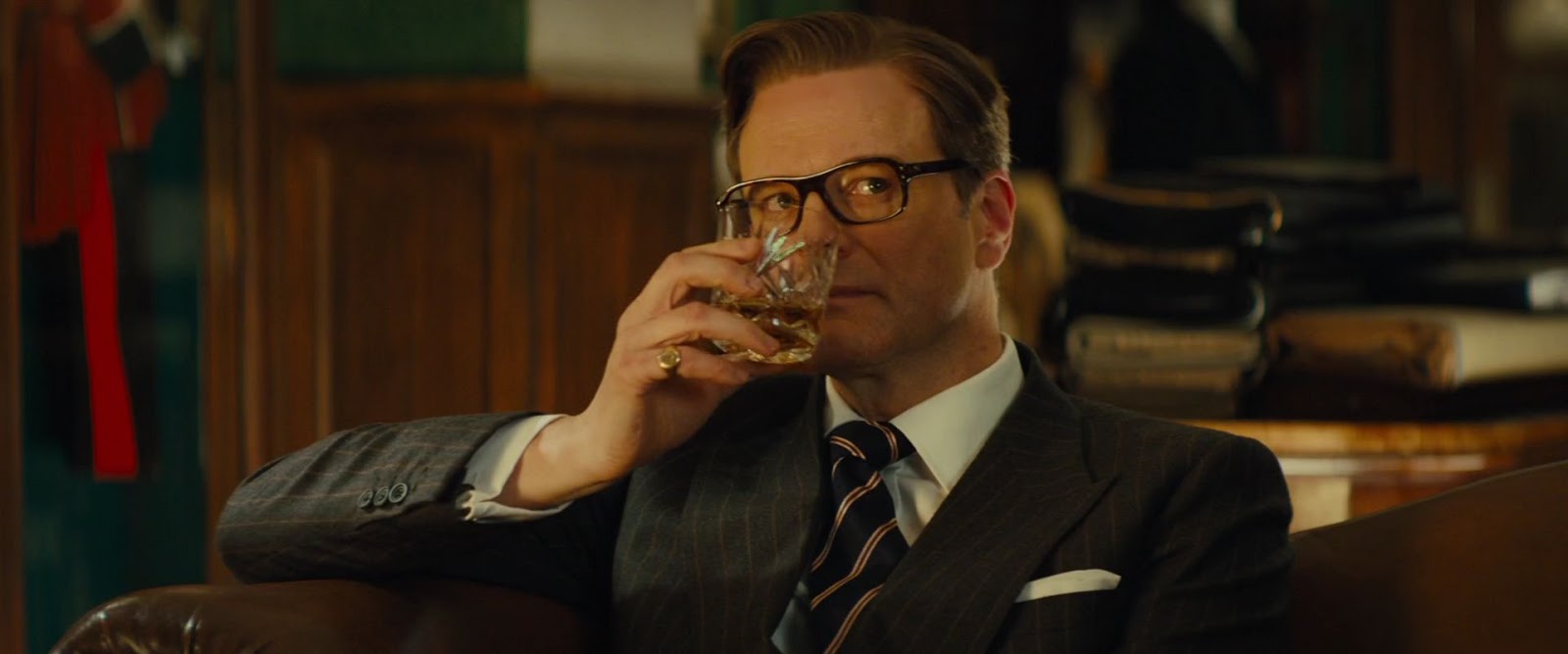 7. Kingsman: The Secret Service: Stardust notwithstanding, Matthew Vaughn films tend to do well on this list –See: Layer Cake, Kick-Ass, X-Men: First Class— and Kingsman is no exception. This anarchic, occasionally snotty send-up of Bond tropes was a visceral blast that didn’t take itself too seriously, didn’t overstay its welcome, and didn’t try to be anything it wasn’t. (And how about that cuh-razy church melee?) This would’ve been one of the most fun times I had in a movie theater this year, had I not actually caught it on a plane.
7. Kingsman: The Secret Service: Stardust notwithstanding, Matthew Vaughn films tend to do well on this list –See: Layer Cake, Kick-Ass, X-Men: First Class— and Kingsman is no exception. This anarchic, occasionally snotty send-up of Bond tropes was a visceral blast that didn’t take itself too seriously, didn’t overstay its welcome, and didn’t try to be anything it wasn’t. (And how about that cuh-razy church melee?) This would’ve been one of the most fun times I had in a movie theater this year, had I not actually caught it on a plane.
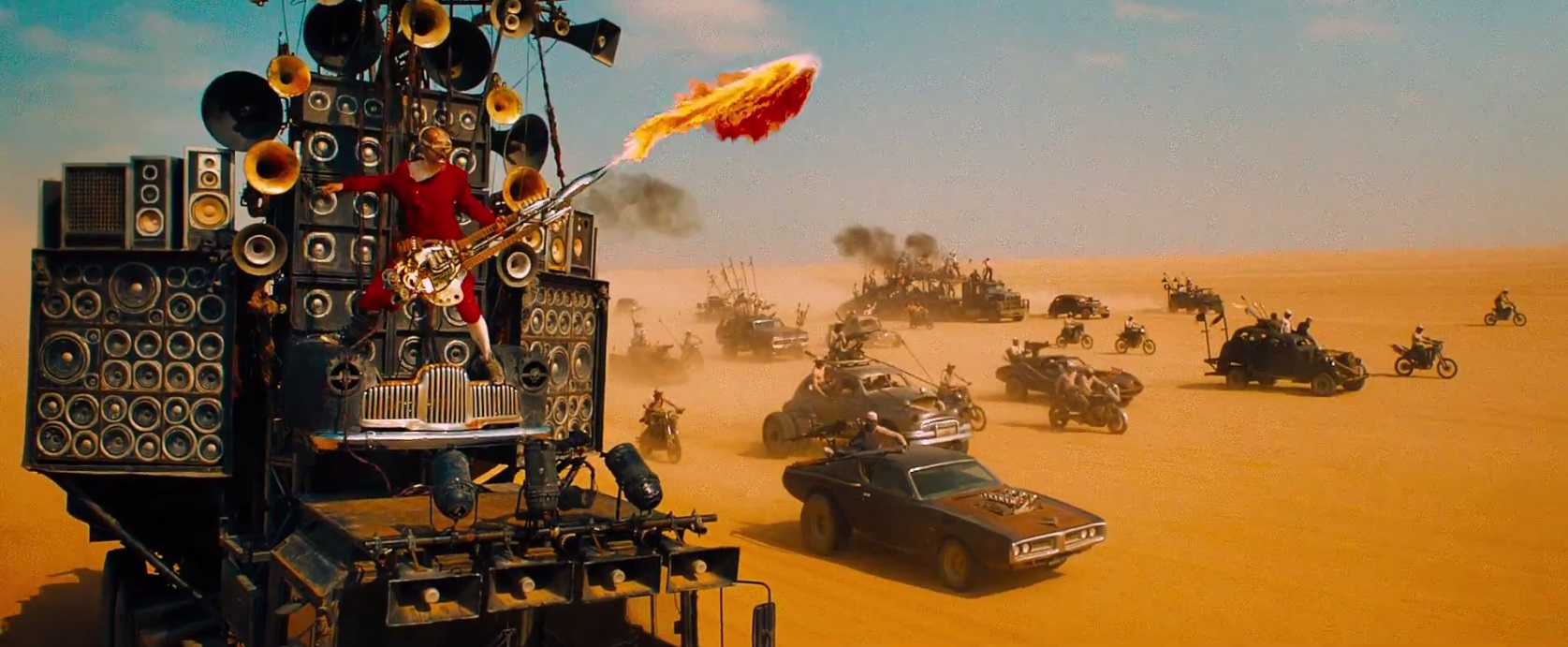 8. Mad Max: Fury Road: He lives, he dies, he lives again! Speaking of visceral melee-fueled thrill rides, and given that George Miller has been an excellent filmmaker over the years, Fury Road was a far better Mad Max sequel after thirty years off than we had any right to expect. Miller’s crazy gamble paid off and then some — however hard to shoot, there is some strikingly beautiful cinematography throughout this film. That being said, and with the caveat that I’m not much of a Road Warrior or car guy, I thought Fury Road was a bit overrated by the end of 2015. It was the best of the summer blockbusters by several lengths, but even a chase sequence as masterfully constructed as the one here gets old after two hours. Er…how long are we riding shiny and chrome again?
8. Mad Max: Fury Road: He lives, he dies, he lives again! Speaking of visceral melee-fueled thrill rides, and given that George Miller has been an excellent filmmaker over the years, Fury Road was a far better Mad Max sequel after thirty years off than we had any right to expect. Miller’s crazy gamble paid off and then some — however hard to shoot, there is some strikingly beautiful cinematography throughout this film. That being said, and with the caveat that I’m not much of a Road Warrior or car guy, I thought Fury Road was a bit overrated by the end of 2015. It was the best of the summer blockbusters by several lengths, but even a chase sequence as masterfully constructed as the one here gets old after two hours. Er…how long are we riding shiny and chrome again?
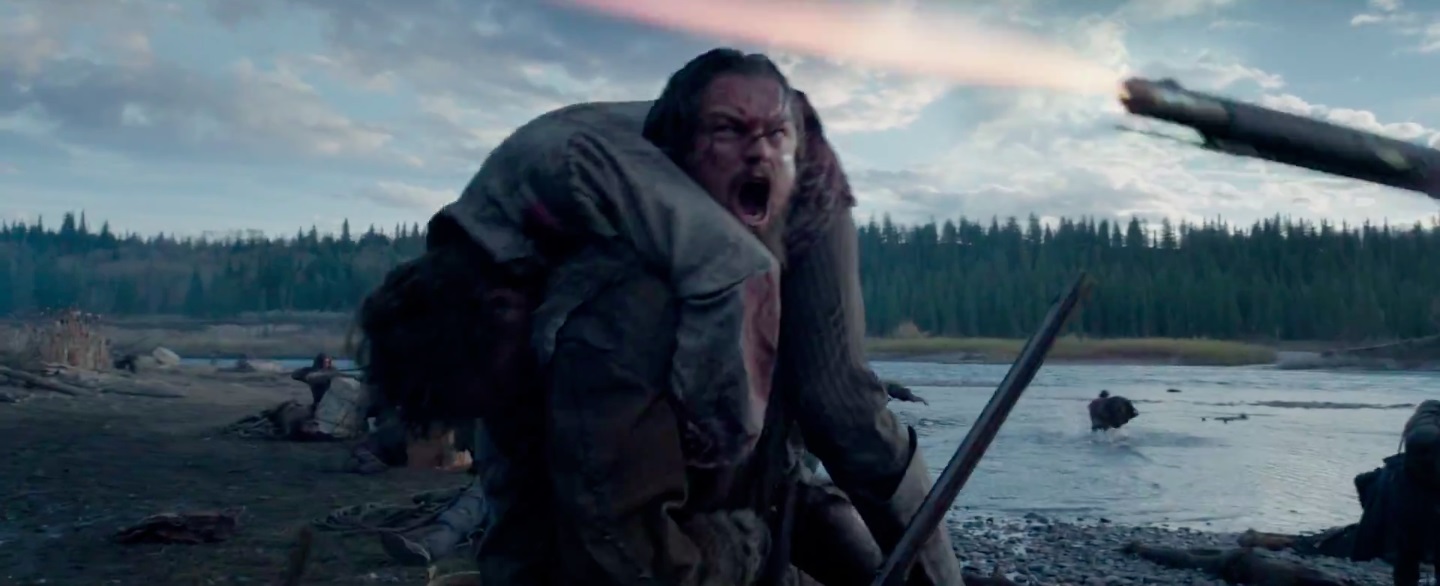 9. The Revenant: I avoided this movie for awhile since I presumed, like Birdman, 21 Grams, and the rest of Inarritu’s output, it would be interminably pretentious. And, yeah, it is. The story here is also absurd in its Mountain Man, quien es mas macho survivalism. (Twice, Di Caprio’s character goes to town on raw and/or wriggling flesh when there’s a fire literally right next to him.) But, unlike Birdman and its claustrophobic hallways, The Revenant also has the advantage of really first-rate nature cinematography, provided by Emmanuel Lubezki. I wasn’t particularly engaged by the revenge tale here, but this is an often beautiful-looking film, and no mistake.
9. The Revenant: I avoided this movie for awhile since I presumed, like Birdman, 21 Grams, and the rest of Inarritu’s output, it would be interminably pretentious. And, yeah, it is. The story here is also absurd in its Mountain Man, quien es mas macho survivalism. (Twice, Di Caprio’s character goes to town on raw and/or wriggling flesh when there’s a fire literally right next to him.) But, unlike Birdman and its claustrophobic hallways, The Revenant also has the advantage of really first-rate nature cinematography, provided by Emmanuel Lubezki. I wasn’t particularly engaged by the revenge tale here, but this is an often beautiful-looking film, and no mistake.
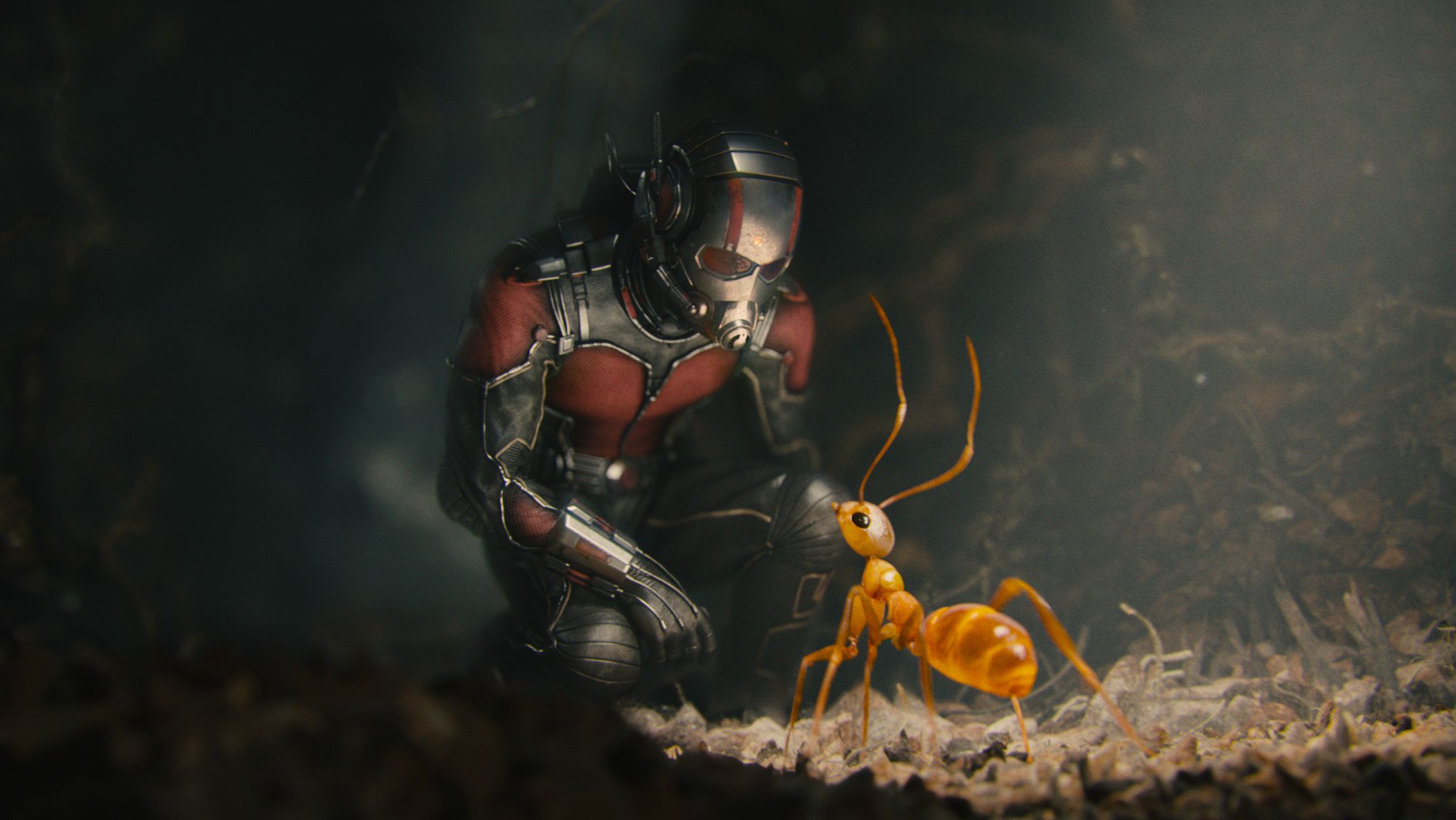 10. Ant-Man: Some day, Marvel will really drop the ball on one of these B- or C-level hero stories. (Perhaps that’s why they’ve postponed The Inhumans.) Today is not that day. Like its star, Ant-Man is a charming, low-key, and amiable addition to the ever-expanding Marvel-verse, with a secret weapon in consistent scene-stealer Michael Pena. It’d have been nice to see what Edgar Wright was cooking up for this character for, lo, so many years, But, to his credit, gun-for-hire Peyton Reed managed to steer this bug away from the zapper. Best of luck on the sequel.
10. Ant-Man: Some day, Marvel will really drop the ball on one of these B- or C-level hero stories. (Perhaps that’s why they’ve postponed The Inhumans.) Today is not that day. Like its star, Ant-Man is a charming, low-key, and amiable addition to the ever-expanding Marvel-verse, with a secret weapon in consistent scene-stealer Michael Pena. It’d have been nice to see what Edgar Wright was cooking up for this character for, lo, so many years, But, to his credit, gun-for-hire Peyton Reed managed to steer this bug away from the zapper. Best of luck on the sequel.
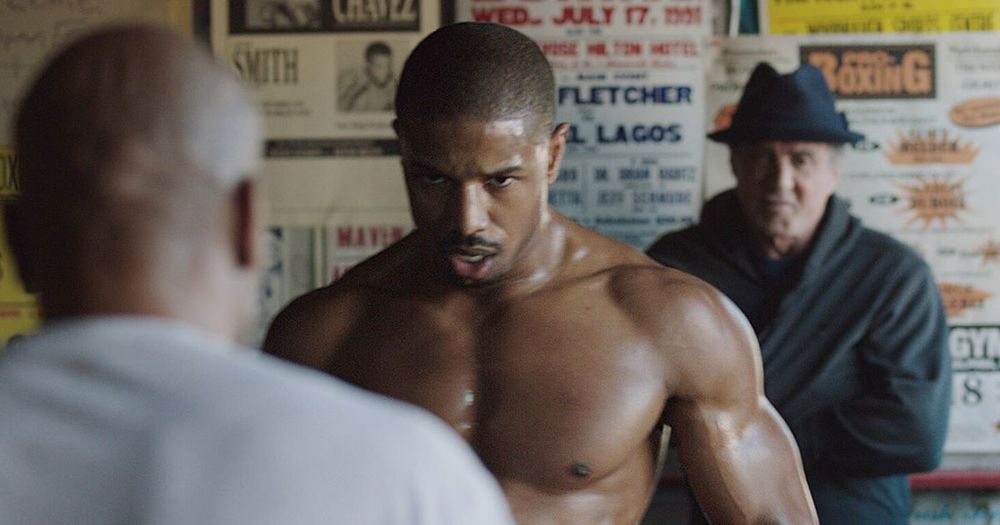 11. Creed: For all intent and purposes, Creed is basically The Force Awakens of the Rocky world — this is another 21st century update of a 70’s classic — and it suffers from many of the same strengths and weaknesses as Abrams’ reboot. Like Episode VII, Creed boasts a lively young cast and solid support from an aging veteran of the earlier films. And, like VII, it follows the contours of the original story to a fault. Still, worth catching, even if it made me wonder how soon we can expect Richard Dreyfuss teaching Chadwick Boseman or Felicity Jones or the like how to catch sharks. (In fact, they could just digitally insert old Hooper into Blake Lively’s new shark flick.)
11. Creed: For all intent and purposes, Creed is basically The Force Awakens of the Rocky world — this is another 21st century update of a 70’s classic — and it suffers from many of the same strengths and weaknesses as Abrams’ reboot. Like Episode VII, Creed boasts a lively young cast and solid support from an aging veteran of the earlier films. And, like VII, it follows the contours of the original story to a fault. Still, worth catching, even if it made me wonder how soon we can expect Richard Dreyfuss teaching Chadwick Boseman or Felicity Jones or the like how to catch sharks. (In fact, they could just digitally insert old Hooper into Blake Lively’s new shark flick.)
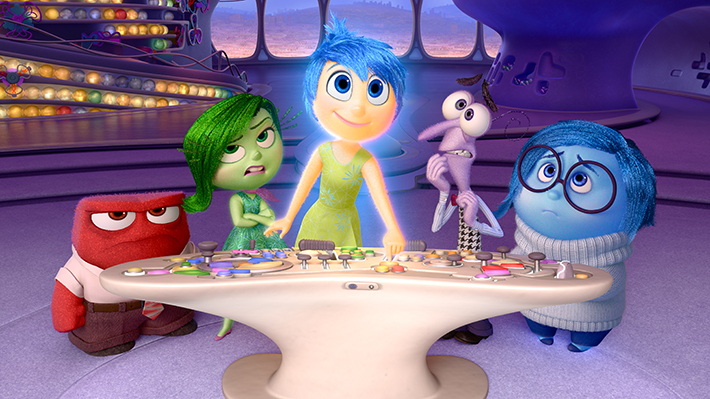 12. Inside Out: Like Marvel, Pixar is another corner of the Disney empire consistently churning out quality product. My main issue with Inside Out at the time was that it felt reductive, and needed many more emotions rattling around Riley’s (and everyone else’s) head than just the five presented. But, a year or so later, that seems like a quibble. Yet another excellent Pixar outing.
12. Inside Out: Like Marvel, Pixar is another corner of the Disney empire consistently churning out quality product. My main issue with Inside Out at the time was that it felt reductive, and needed many more emotions rattling around Riley’s (and everyone else’s) head than just the five presented. But, a year or so later, that seems like a quibble. Yet another excellent Pixar outing.
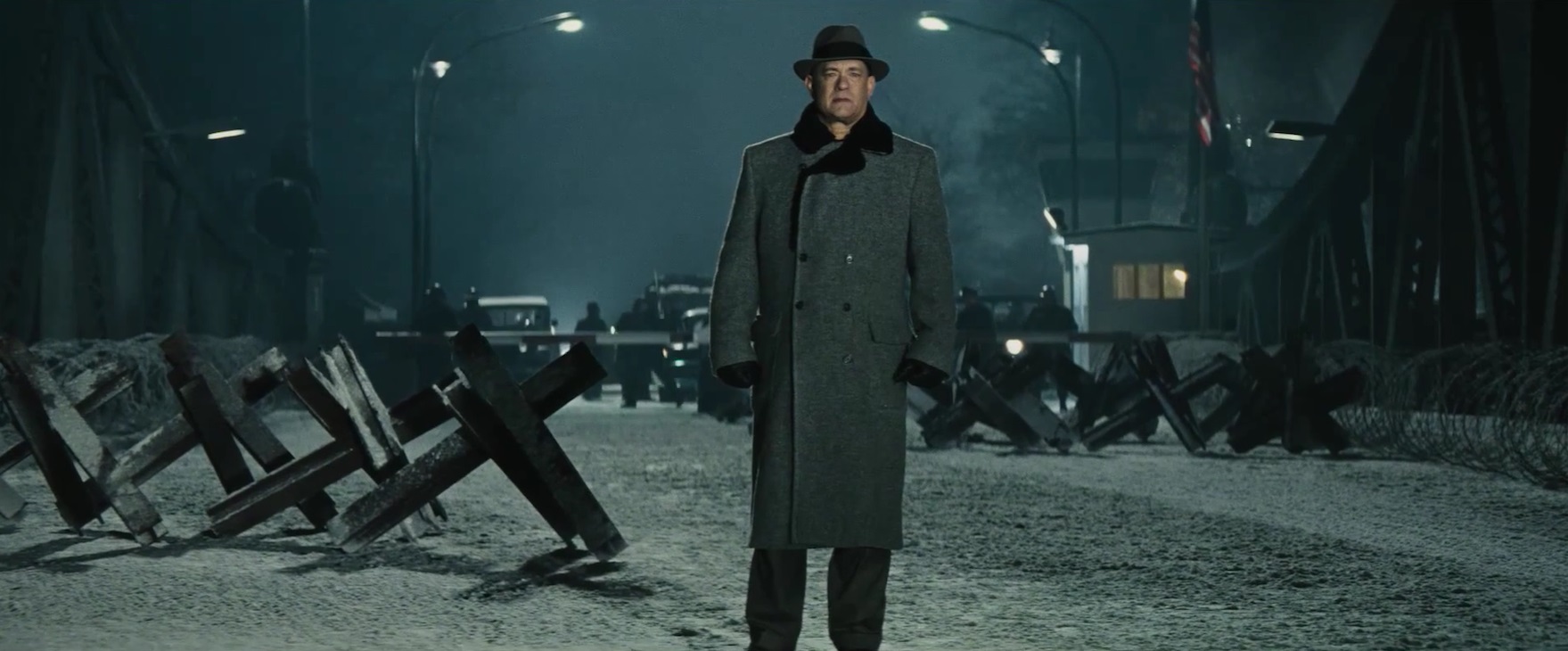 13. Bridge of Spies: I had hopes this well-made Spielberg prestige picture about James Donovan and the U-2 spy plane would be a little more overtly Coen-y, given that the brothers wrote the screenplay. (The only time it really comes through is when Donovan (Tom Hanks) is introduced to Abel’s fake family.) But, even if it’s a bit staid throughout, what we got here is a worthwhile throwback of a movie, with Hanks well-cast in what would be the Gregory Peck/Jimmy Stewart role.
13. Bridge of Spies: I had hopes this well-made Spielberg prestige picture about James Donovan and the U-2 spy plane would be a little more overtly Coen-y, given that the brothers wrote the screenplay. (The only time it really comes through is when Donovan (Tom Hanks) is introduced to Abel’s fake family.) But, even if it’s a bit staid throughout, what we got here is a worthwhile throwback of a movie, with Hanks well-cast in what would be the Gregory Peck/Jimmy Stewart role.
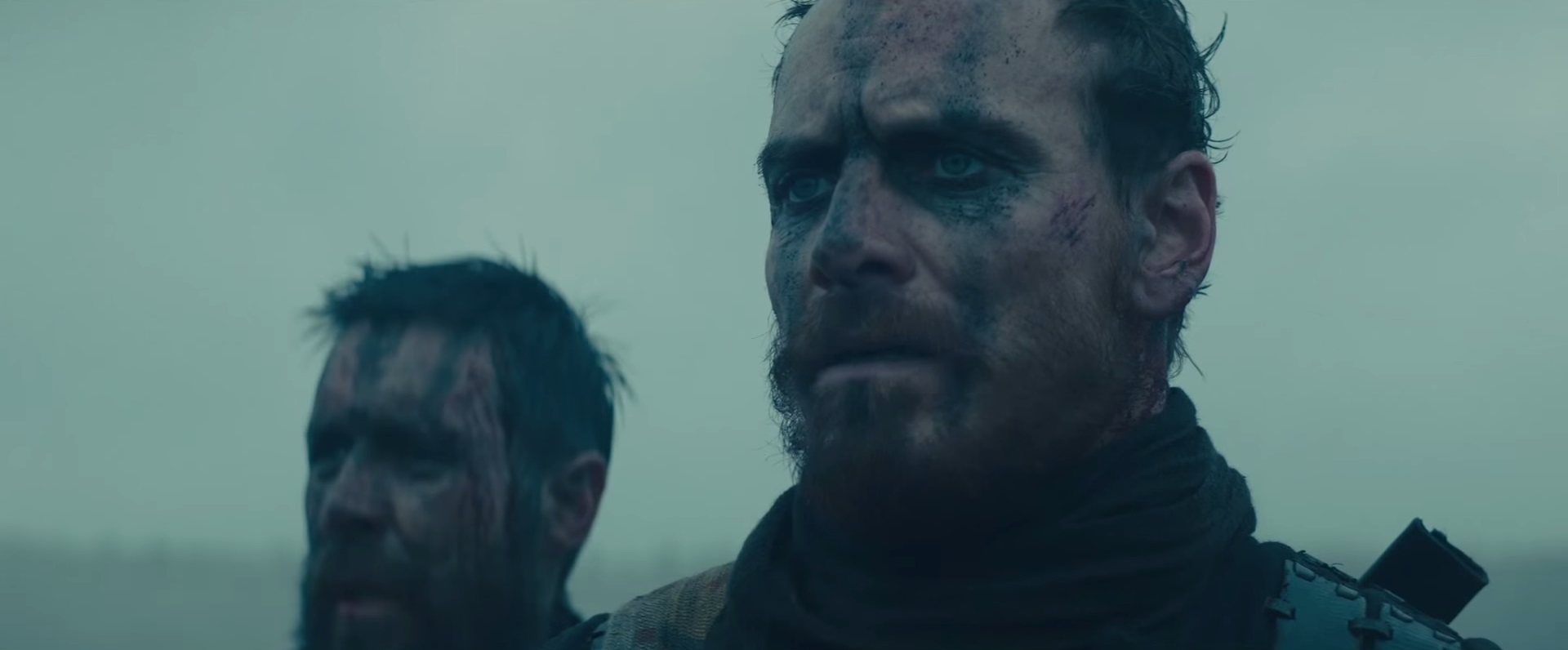 14. Macbeth: “Stars, hide your fires; Let not light see my black and deep desires.” Foul is fair indeed in this often gorgeous retelling of the famous play, with Michael Fassbender and Marion Cotillard headlining as the ambition-wracked titular couple (she’s amazing, he’s a bit much) and several ringers in the wings, including Paddy Considine, Sean Harris, and David Thewlis. Another film on this list, like The Revenant and Fury Road, that’s worth seeing for the cinematography alone…tho’ the Bard’s not half-bad either.
14. Macbeth: “Stars, hide your fires; Let not light see my black and deep desires.” Foul is fair indeed in this often gorgeous retelling of the famous play, with Michael Fassbender and Marion Cotillard headlining as the ambition-wracked titular couple (she’s amazing, he’s a bit much) and several ringers in the wings, including Paddy Considine, Sean Harris, and David Thewlis. Another film on this list, like The Revenant and Fury Road, that’s worth seeing for the cinematography alone…tho’ the Bard’s not half-bad either.
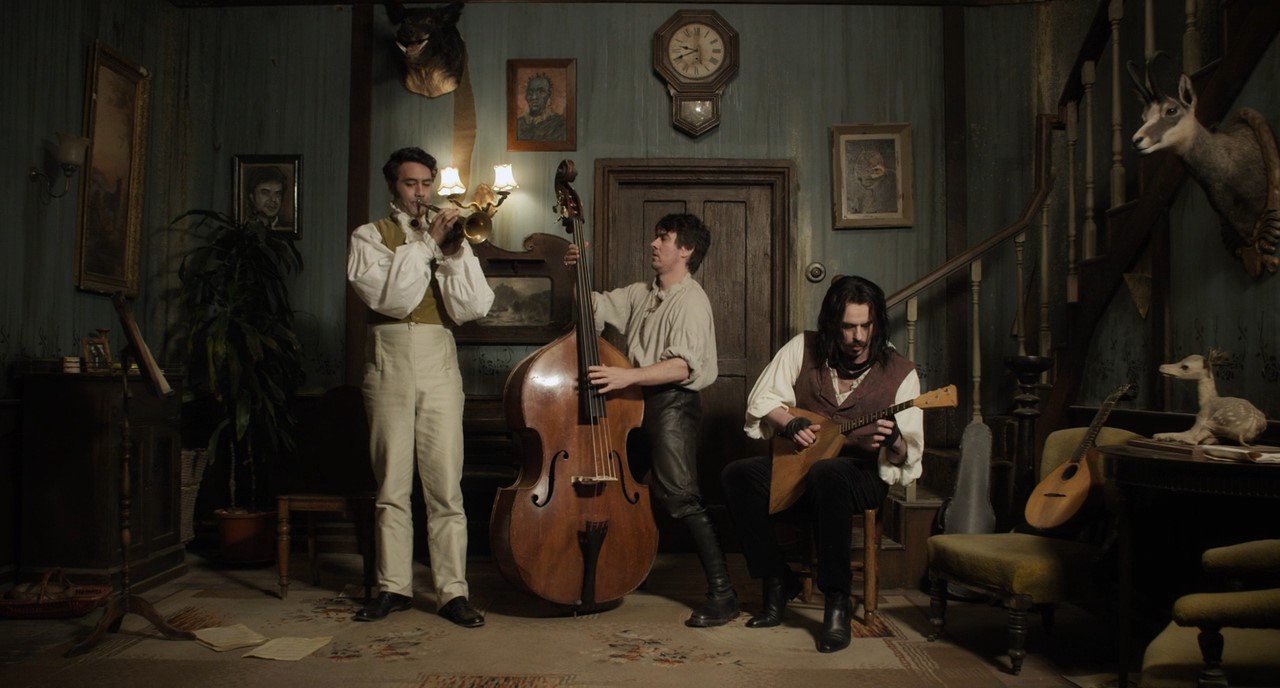 15. What We Do in the Shadows: Several good laughs to be had in Taika Waititi and Jemaine Clement’s warm-hearted, cold-blooded mockumentary of Kiwi vampire roommates. Even if early hype had me expecting something even funnier, it’s impressive that Waititi, Clement et al made such a fresh-feeling film out of what’s been one of the more well-mined corners of genre of late. I’m in for We’re Wolves (tho’, with Murray (Rhys Darby) playing the leader of those swearwolves, why wasn’t Bret invited to the plastic pantomime?)
15. What We Do in the Shadows: Several good laughs to be had in Taika Waititi and Jemaine Clement’s warm-hearted, cold-blooded mockumentary of Kiwi vampire roommates. Even if early hype had me expecting something even funnier, it’s impressive that Waititi, Clement et al made such a fresh-feeling film out of what’s been one of the more well-mined corners of genre of late. I’m in for We’re Wolves (tho’, with Murray (Rhys Darby) playing the leader of those swearwolves, why wasn’t Bret invited to the plastic pantomime?)
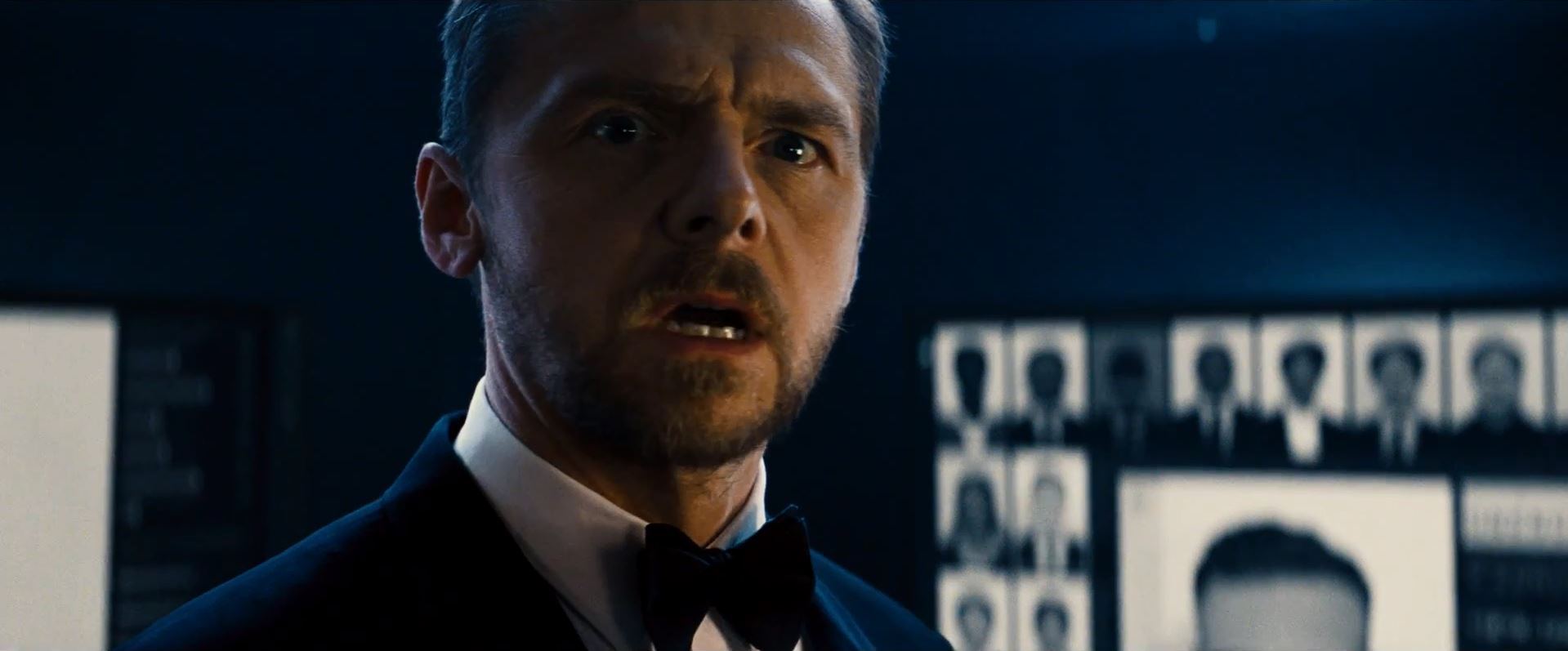 16. MI: Rogue Nation: Chris McQuarrie’s impossible mission doesn’t quite hit at the level of Brad Bird’s Ghost Protocol, but it’s right up there. With a smart choice of villain in Sean Harris, more for Simon Pegg to do, and an impressive newcomer in Rebecca Ferguson, MI:RN was the second-best summer ride after Fury Road, and feels like a franchise that, well after the first installment, is still going places. And loath as I am to agree with Donald Trump, what I said about Edge of Tomorrow applies here as well: For all of his personal faults, Tom Cruise remains a surprisingly committed movie star.
16. MI: Rogue Nation: Chris McQuarrie’s impossible mission doesn’t quite hit at the level of Brad Bird’s Ghost Protocol, but it’s right up there. With a smart choice of villain in Sean Harris, more for Simon Pegg to do, and an impressive newcomer in Rebecca Ferguson, MI:RN was the second-best summer ride after Fury Road, and feels like a franchise that, well after the first installment, is still going places. And loath as I am to agree with Donald Trump, what I said about Edge of Tomorrow applies here as well: For all of his personal faults, Tom Cruise remains a surprisingly committed movie star.
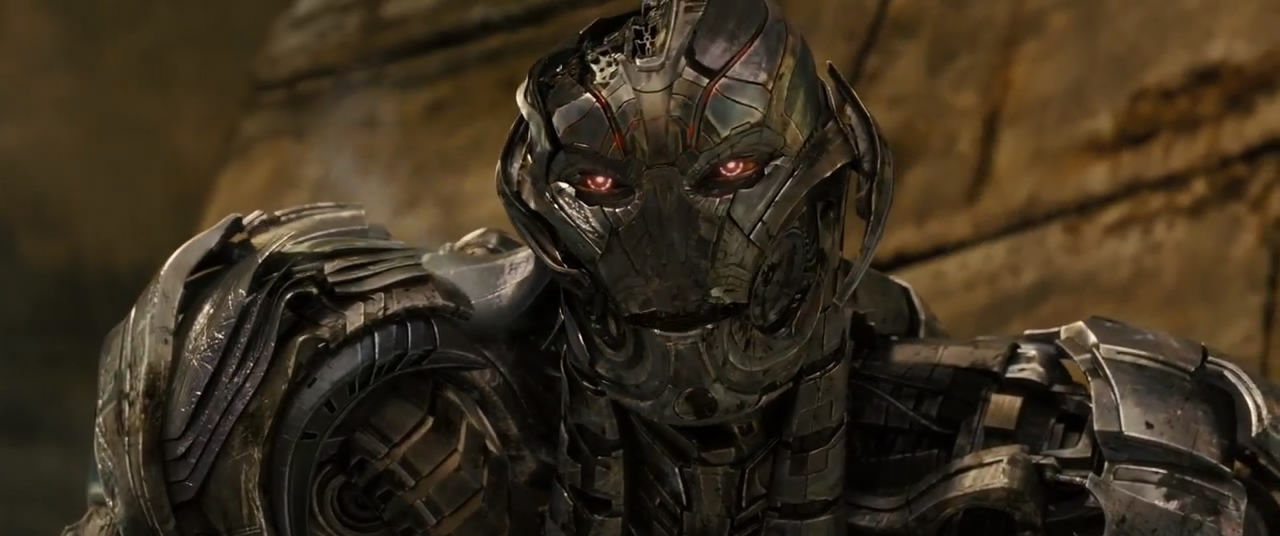 17. Avengers: Age of Ultron: A messier and more frazzled foray than the superb first installment, Joss Whedon’s Age of Ultron unfortunately carries the weight of its blockbuster-ness around like a sack of potatoes. James Spader’s quippy turn as the Big Bad felt genuinely unconventional — weirdest Less Than Zero sequel ever, by the way — but everything else here felt both rushed and strained, sometimes to the point of incoherence. (I’m looking at you, Thor’s hot tub time machine.) The good news is, if Winter Soldier and Civil War are any indication, the brothers Russo are more than ready to take up this burden for the Infinity War.
17. Avengers: Age of Ultron: A messier and more frazzled foray than the superb first installment, Joss Whedon’s Age of Ultron unfortunately carries the weight of its blockbuster-ness around like a sack of potatoes. James Spader’s quippy turn as the Big Bad felt genuinely unconventional — weirdest Less Than Zero sequel ever, by the way — but everything else here felt both rushed and strained, sometimes to the point of incoherence. (I’m looking at you, Thor’s hot tub time machine.) The good news is, if Winter Soldier and Civil War are any indication, the brothers Russo are more than ready to take up this burden for the Infinity War.
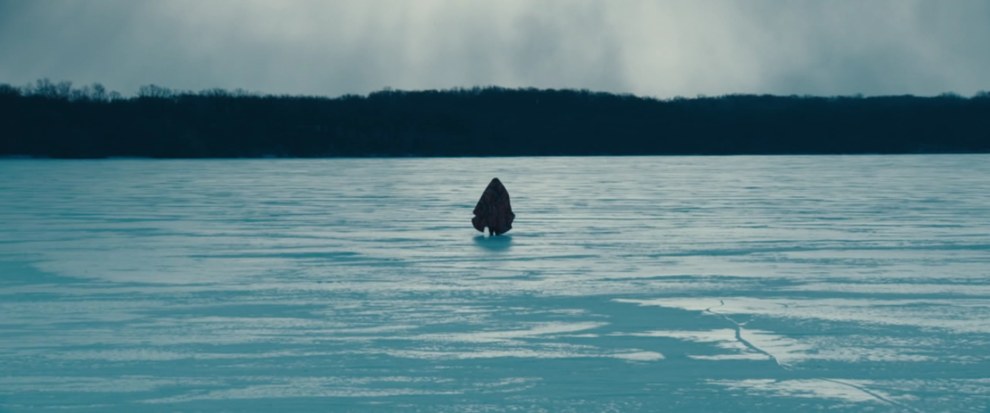 18. Kumiko the Treasure Hunter: The first hour of this film is slooooow, and I might’ve felt that way about the second hour too if I had known where we were headed. But lucky for me going in, I had no inkling this tale, about a lonely Japanese woman obsessed with finding the buried suitcase from Fargo, was based on a “true” story. So I had no idea where this movie was going, and was honestly expecting something much more whimsical and magical realist than the depression case study we have here. Either way, the film has some truly haunting moments (Bunzo on the Metro, for example), picks up steam once Kumiko arrives in the Northlands, and has a wallop of an ending that will stay with you after the credits.
18. Kumiko the Treasure Hunter: The first hour of this film is slooooow, and I might’ve felt that way about the second hour too if I had known where we were headed. But lucky for me going in, I had no inkling this tale, about a lonely Japanese woman obsessed with finding the buried suitcase from Fargo, was based on a “true” story. So I had no idea where this movie was going, and was honestly expecting something much more whimsical and magical realist than the depression case study we have here. Either way, the film has some truly haunting moments (Bunzo on the Metro, for example), picks up steam once Kumiko arrives in the Northlands, and has a wallop of an ending that will stay with you after the credits.
 19. The Martian: Once again, saving Matt Damon proves the critical spending stimulus America needs. I read the Andy Weir book first and thought, while the science lectures were great fun, the writing and especially the characters were flat-out terribad. (Like, how many disco jokes do we need?) This movie skips over a lot of the fun science that made Weir’s book memorable, but improves on the people part of the equation, so it’s a wash. In any event, seriously, as the Buzzfeed quiz says, “put a bell on this guy”…wait, you lost him AGAIN?!
19. The Martian: Once again, saving Matt Damon proves the critical spending stimulus America needs. I read the Andy Weir book first and thought, while the science lectures were great fun, the writing and especially the characters were flat-out terribad. (Like, how many disco jokes do we need?) This movie skips over a lot of the fun science that made Weir’s book memorable, but improves on the people part of the equation, so it’s a wash. In any event, seriously, as the Buzzfeed quiz says, “put a bell on this guy”…wait, you lost him AGAIN?!
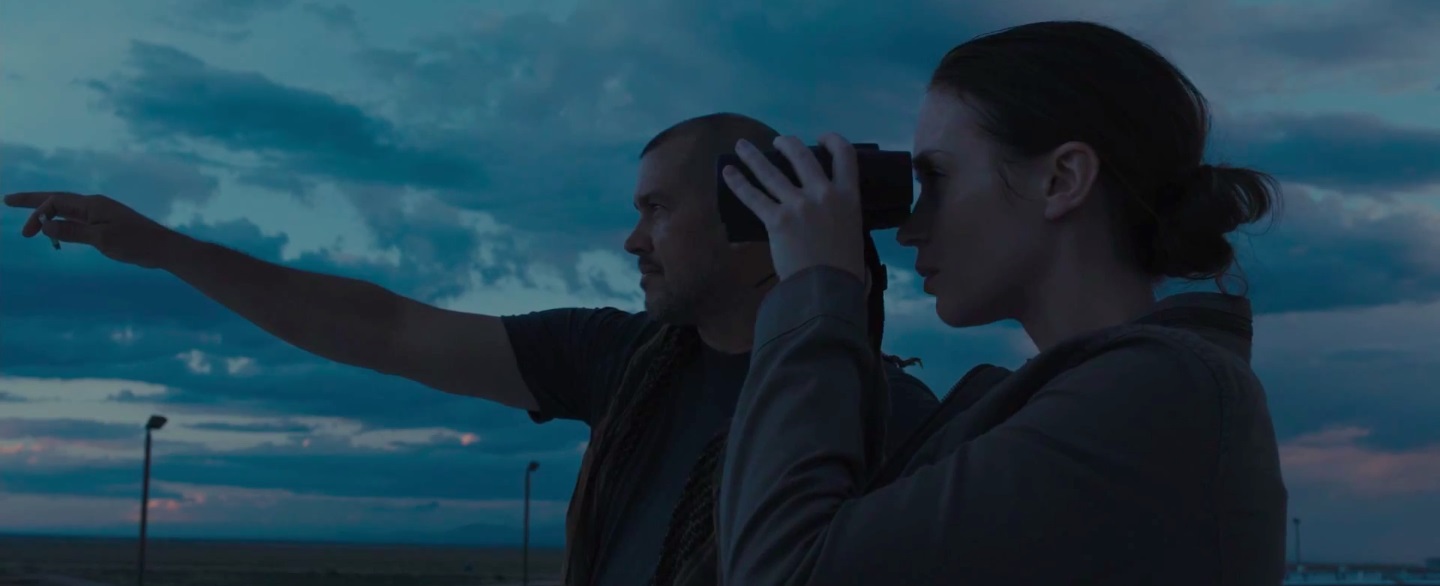 20. Sicario: Admittedly, this movie gets dumber and more formulaic as Benicio del Toro turns into a gloomy, cartel-smashing superhero. But, for most of its run, Sicario is a surprisingly poetic piece of cinema, and one that manages to keep a frisson of the same sort of this-fustercluck-is-actually-happening-right-now immediacy as Traffic or Syriana. Not sure we need a sequel here, tho’.
20. Sicario: Admittedly, this movie gets dumber and more formulaic as Benicio del Toro turns into a gloomy, cartel-smashing superhero. But, for most of its run, Sicario is a surprisingly poetic piece of cinema, and one that manages to keep a frisson of the same sort of this-fustercluck-is-actually-happening-right-now immediacy as Traffic or Syriana. Not sure we need a sequel here, tho’.
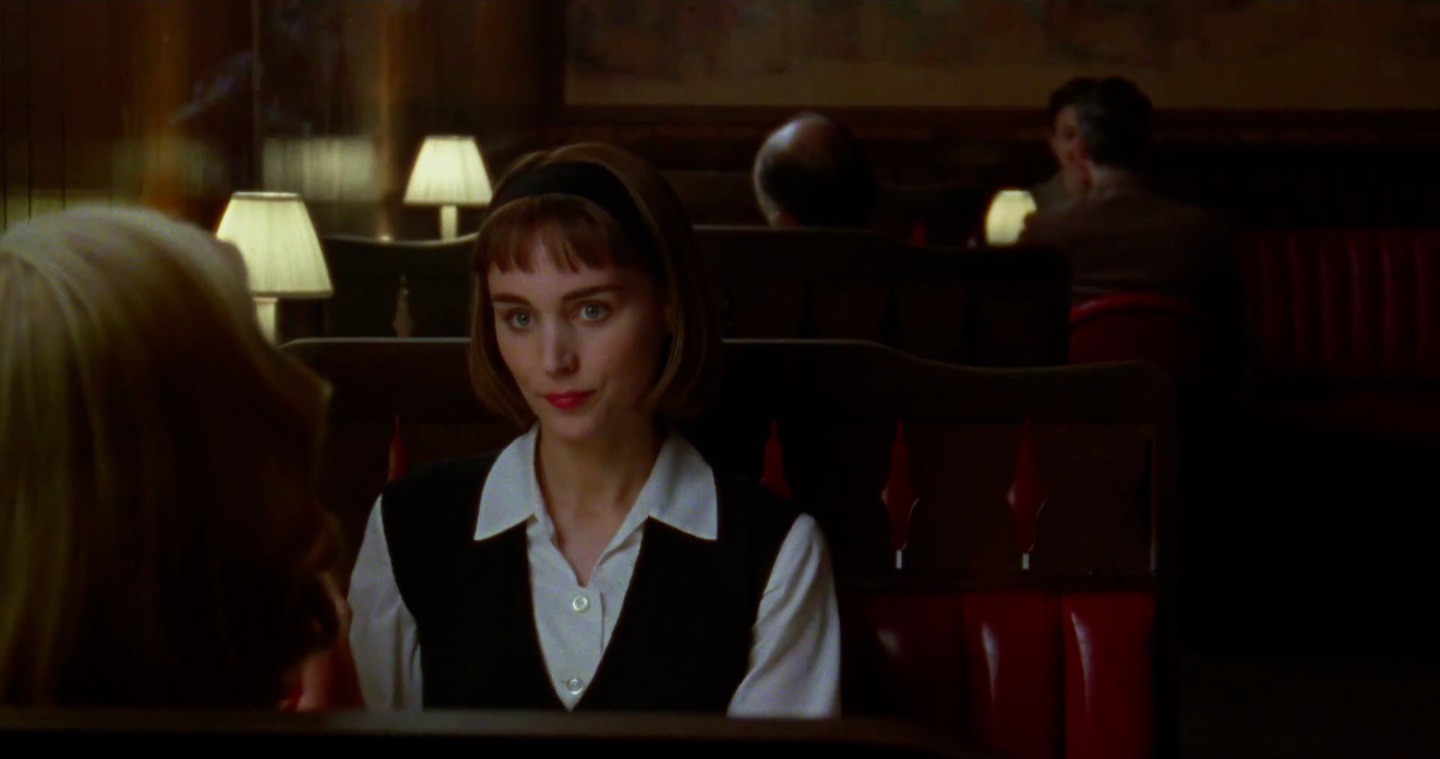 21. Carol: I tend to like Todd Haynes movies and was looking forward to this one…so I’m a bit bummed to relate that I was kinda bored by Carol. It has moments of loveliness, but for all intent and purposes this May-December romance felt to me like a less-Sirk-y remake of Far from Heaven. (Forbidden love vs fifties mores, etc.) Therese (Rooney Mara), the ingénue of this story, is a cipher, and thus not very interesting. As for Carol (Cate Blanchett), she not a particularly sympathetic character — if the couple here were straight, she’d seem like a middle-aged predator — and attempts to make her so mostly fall flat. (As Carol’s angry, insecure ex-husband, Kyle Chandler is given one note to play and he just keeps banging on it throughout.) I get that Patricia Highsmith’s novel was groundbreaking for the time, but, in 2016, this story seems a little more rote. But at least Carol feels like the era it’s set in, unlike…
21. Carol: I tend to like Todd Haynes movies and was looking forward to this one…so I’m a bit bummed to relate that I was kinda bored by Carol. It has moments of loveliness, but for all intent and purposes this May-December romance felt to me like a less-Sirk-y remake of Far from Heaven. (Forbidden love vs fifties mores, etc.) Therese (Rooney Mara), the ingénue of this story, is a cipher, and thus not very interesting. As for Carol (Cate Blanchett), she not a particularly sympathetic character — if the couple here were straight, she’d seem like a middle-aged predator — and attempts to make her so mostly fall flat. (As Carol’s angry, insecure ex-husband, Kyle Chandler is given one note to play and he just keeps banging on it throughout.) I get that Patricia Highsmith’s novel was groundbreaking for the time, but, in 2016, this story seems a little more rote. But at least Carol feels like the era it’s set in, unlike…
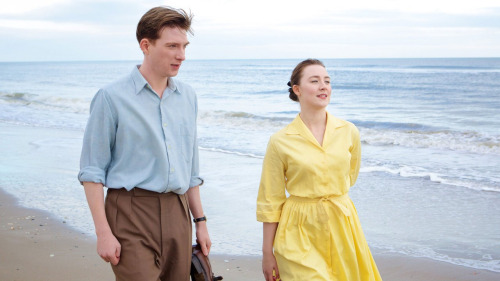 22. Brooklyn: Another well-made fifties love story-turned-tragedy, about a young Irish woman (Saiorse Ronan) who starts a new life in America, but chooses to throw away her only real chance at happiness by marrying an Italian plumber (Emory Cohen) and moving to Levittown. (Sorry, I’m #TeamGleeson all the way.) Seriously, though, this is another throwback picture like Bridge of Spies, and it’s an enjoyable immigrant tale, even if it tends to act like Eilis came to the New World in 1880 or 1920 at various points. (It’s 1952, y’all. Back-and-forth transatlantic travel is an established thing.)
22. Brooklyn: Another well-made fifties love story-turned-tragedy, about a young Irish woman (Saiorse Ronan) who starts a new life in America, but chooses to throw away her only real chance at happiness by marrying an Italian plumber (Emory Cohen) and moving to Levittown. (Sorry, I’m #TeamGleeson all the way.) Seriously, though, this is another throwback picture like Bridge of Spies, and it’s an enjoyable immigrant tale, even if it tends to act like Eilis came to the New World in 1880 or 1920 at various points. (It’s 1952, y’all. Back-and-forth transatlantic travel is an established thing.)
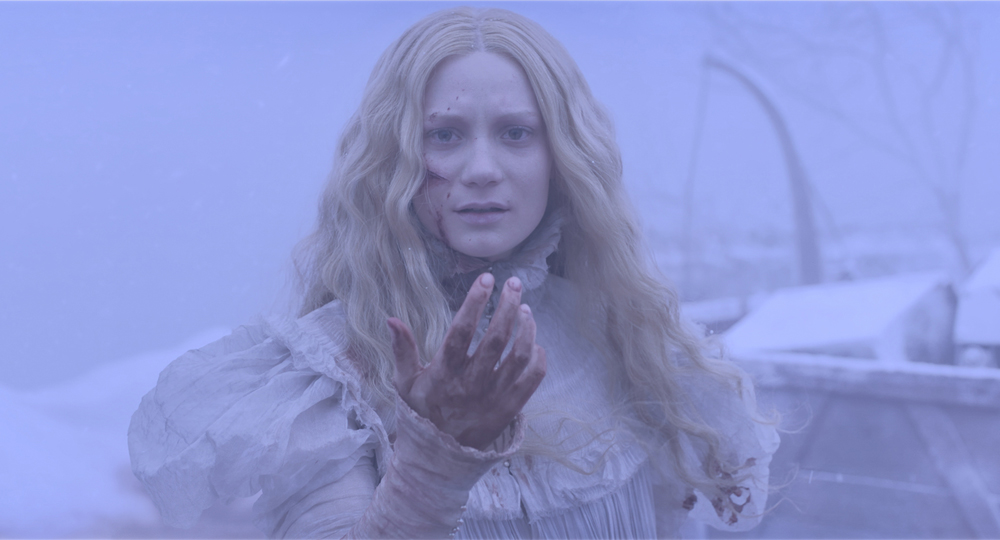 23. Crimson Peak: As all the moths and butterflies everywhere attest, this sumptuous Gothic romance/ghost story is basically Guillermo del Toro playing with his toys, so not in the league of say, The Devil’s Backbone. But, even if the story is all over the place at times — apparitions come and go whenever the movie needs a jolt — it’s all very pretty to look at. It’s just too bad del Toro likes seeing sharp objects slicing and penetrating people so much, since every gory slash ruins the otherwise lush atmosphere here.
23. Crimson Peak: As all the moths and butterflies everywhere attest, this sumptuous Gothic romance/ghost story is basically Guillermo del Toro playing with his toys, so not in the league of say, The Devil’s Backbone. But, even if the story is all over the place at times — apparitions come and go whenever the movie needs a jolt — it’s all very pretty to look at. It’s just too bad del Toro likes seeing sharp objects slicing and penetrating people so much, since every gory slash ruins the otherwise lush atmosphere here.
 24. Room: A well-made adaptation of a 2010 book by Emma Donoghue (which I haven’t read), Room kept me off-kilter throughout mainly because I’m so used to American movie tropes. Here, a woman (Brie Larson) and her child (Jacob Tremblay) ultimately escape from the shed they’re locked in for years, a la Kimmy Schmidt. And yet, the movie never turns into Sleeping with the Enemy (he’s still out there!) or a courtroom procedural (you have to testify against him!) It simply tells the story of their escape and the psychological aftermath. Both Larson and Tremblay are very good here, even if, to be honest, I spent a lot of the shed period of the film rooting for the Babadook to show up.
24. Room: A well-made adaptation of a 2010 book by Emma Donoghue (which I haven’t read), Room kept me off-kilter throughout mainly because I’m so used to American movie tropes. Here, a woman (Brie Larson) and her child (Jacob Tremblay) ultimately escape from the shed they’re locked in for years, a la Kimmy Schmidt. And yet, the movie never turns into Sleeping with the Enemy (he’s still out there!) or a courtroom procedural (you have to testify against him!) It simply tells the story of their escape and the psychological aftermath. Both Larson and Tremblay are very good here, even if, to be honest, I spent a lot of the shed period of the film rooting for the Babadook to show up.
 25. Straight Outta Compton: It was a close race for this last spot between two reasonably satisfying music biopics featuring Paul Giamatti as an industry leech: Love and Mercy and this F. Gary Gray overview of the rise of hip-hop’s N.W.A. I went with Compton in the end since it has more of a social message and, even despite the serious whitewashing here, at least it doesn’t keep telling us in every. single. scene. that the protagonists are musical geniuses. (Yes, yes, Pet Sounds is amazing and ahead of its time, I get it.)
25. Straight Outta Compton: It was a close race for this last spot between two reasonably satisfying music biopics featuring Paul Giamatti as an industry leech: Love and Mercy and this F. Gary Gray overview of the rise of hip-hop’s N.W.A. I went with Compton in the end since it has more of a social message and, even despite the serious whitewashing here, at least it doesn’t keep telling us in every. single. scene. that the protagonists are musical geniuses. (Yes, yes, Pet Sounds is amazing and ahead of its time, I get it.)
MOST DISAPPOINTING:
 The Hateful Eight: Welp, Tarantino has disappeared up his own ass again. This overlong chamber piece purports to have big ideas about history and the Civil War, not to mention the stark chasm between the mythology surrounding American heroes and the inglorious basterds they in fact often were. But there’s no there there – Hateful isn’t nearly as profound as it thinks it is. Worse, Tarantino botches the actual story here. Eight ne’er-do-wells trapped in a lodge during snowstorm should’ve played out as a decent Agatha Christie mystery. Instead, the big twist is revealed in the opening credits, and so many suspects end up being part of the ultimate conspiracy that the narrative just feels like a cheat. Of course, QT is more interested in the dialogue than the plot anyway, but, even then, the profane, inane chatter gets old well before everybody start bleeding all over the floor. Maybe Tarantino should pull a Jackie Brown and do an adaptation of someone else’s work for a change.
The Hateful Eight: Welp, Tarantino has disappeared up his own ass again. This overlong chamber piece purports to have big ideas about history and the Civil War, not to mention the stark chasm between the mythology surrounding American heroes and the inglorious basterds they in fact often were. But there’s no there there – Hateful isn’t nearly as profound as it thinks it is. Worse, Tarantino botches the actual story here. Eight ne’er-do-wells trapped in a lodge during snowstorm should’ve played out as a decent Agatha Christie mystery. Instead, the big twist is revealed in the opening credits, and so many suspects end up being part of the ultimate conspiracy that the narrative just feels like a cheat. Of course, QT is more interested in the dialogue than the plot anyway, but, even then, the profane, inane chatter gets old well before everybody start bleeding all over the floor. Maybe Tarantino should pull a Jackie Brown and do an adaptation of someone else’s work for a change.
WHAT IS THIS I CAN’T EVEN:
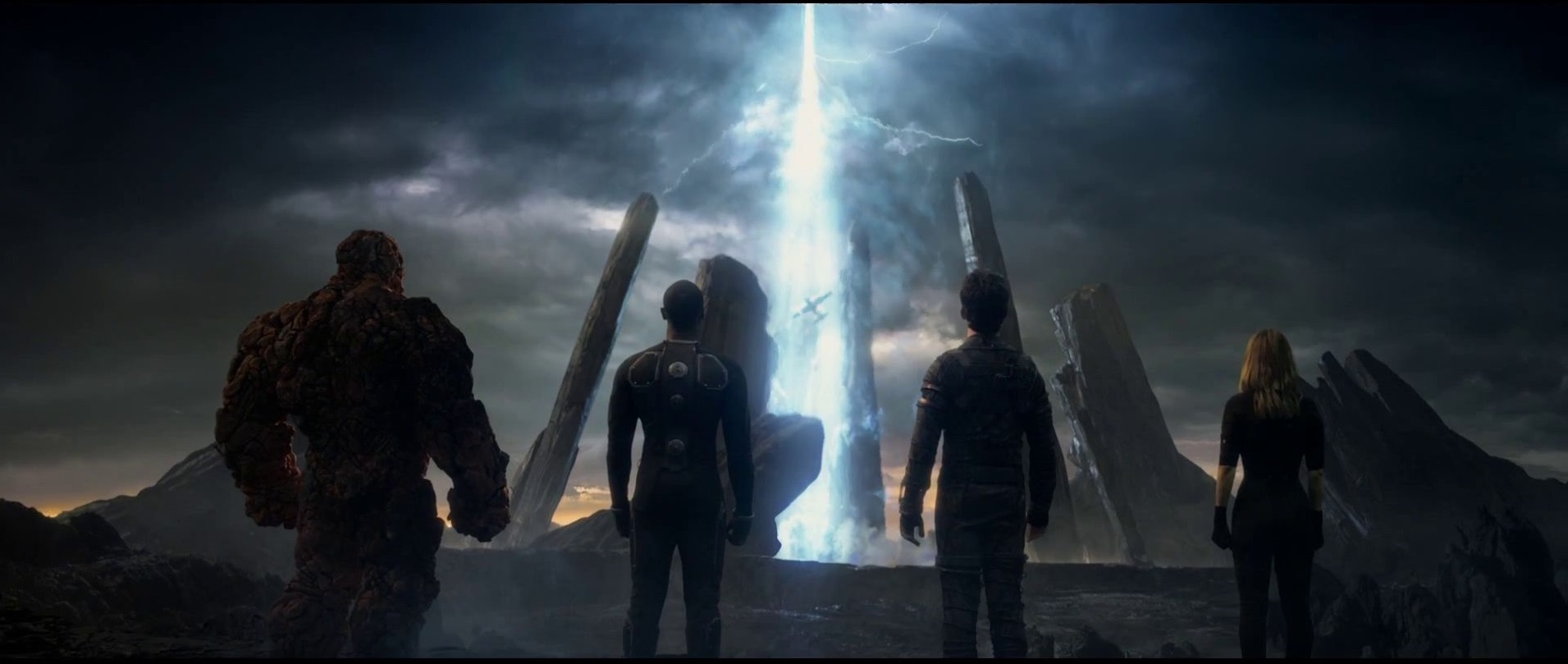 Fantastic Four: I mean, there’s no use to piling on at this late date, but Josh Trank’s FF reboot is just an out-and-out disaster. Miles Teller, Michael B. Jordan, Toby Kebbell, Reg E. Cathey — there are some very likable actors in this picture. And yet the movie feels both amateurishly-made and as if the studio suits took the keys away in a panic move mid-production. Whatever happened, this FF is so bad it makes the two Tim Story movies feel like modern Marvel…who should really get this property back already.
Fantastic Four: I mean, there’s no use to piling on at this late date, but Josh Trank’s FF reboot is just an out-and-out disaster. Miles Teller, Michael B. Jordan, Toby Kebbell, Reg E. Cathey — there are some very likable actors in this picture. And yet the movie feels both amateurishly-made and as if the studio suits took the keys away in a panic move mid-production. Whatever happened, this FF is so bad it makes the two Tim Story movies feel like modern Marvel…who should really get this property back already.
THE REST:
Worth On Demand-ing::
Best of Enemies: A good documentary on the 1968 Vidal-Buckley feuds, though, to be honest, watching them debate feels like watching the NBA before Bill Russell. You can tell me Buckley is brilliant over and over again, but it doesn’t make it true. Meritocracy killed the Firing Line star.
The Hunger James: Mockingjay, Part 2: Fine and admirably downbeat like the third book, this still seems like it should’ve been one movie with the first part, and that the franchise overstayed its welcome by a year.
Love and Mercy: Well-done, but see Compton, above.
Our Brand is Crisis: Rather preachy by the end, but I still enjoyed it.
Spy: Better than I expected, but, then again, Paul Feig has been admirably consistent.
Tomorrowland: Brad Bird sure does love Ayn Rand, doesn’t he? Still, worth seeing just for Hugh Laurie’s rant about contemporary pop culture.
Don’t Bother:
Aloha: The kerfuffle over Emma Stone’s casting aside, this film is inert from the first reel. What’s happened to Cameron Crowe?
Black Mass: The world doesn’t need any more gangster movies. This one adds nothing new to the mix. The best scene is the one from the trailers, with Depp’s Bulger bullying a Fed at the dinner table.
Dope: Tries too hard, and I found it cloying in the manner of Diablo Cody. Tho’ I did like the section where Bitcoin gets involved.
Fifty Shades of Gray: Terrible. Not even sexy. And yet still an improvement on the book! C’mon, America, get it together – France did this all better sixty years ago.
Jurassic World: Ho-hum. A by-the-numbers product of the reboot machine. But it’s competently made, so Episode IX has that going for it.
The Last Five Years: A not-very-good adaptation of the recent divorce musical. I was bored by it.
Spectre: This is a pretty good Bond movie for awhile, but it completely skips the rails once 007 and his most recent muse end up at that bus station in Africa. Just as Skyfall Bruce Wayne-ified Bond, now we get Blofeld as The Joker. Doesn’t work, doesn’t make any sense, is egregiously dumb.
Steve Jobs: Typical Sorkin walk-and-talk-fest, all in the service of getting to know a guy whose main claim to fame was marketing gimmickry. Not my cup of tea.
Terminator: Genisys: Kind of a disaster, was ruined by the trailers, and feels made for TV. Also needs more Matt Smith and J.K. Simmons. But at least it’s weird.
Trainwreck: LeBron James is a surprisingly good comic actor. This still wasn’t particularly funny however.
A Good Year For:
- 70’s Reboots (The Force Awakens, Creed)
- Domhnall Gleeson (Ex Machina, Brooklyn, The Revenant, Star Wars)
A Bad Year For:
- Timely End-of-Year Lists
- Walks In the Woods (Kumiko The Treasure Hunter, The Revenant)
Unseen: 99 Homes, The Age of Adaline, American Ultra, Amy, Beasts of No Nation, Blackhat, Chappie, Child 44, Chi-Raq, Clouds of Sils Maria, Concussion, Cop Car, Daddy’s Home, The Danish Girl, The End of the Tour, Entourage, Far from the Madding Crowd, Furious 7, Get Hard, The Gift, The Good Dinosaur, Grandma, Hot Pursuit, Infinitely Polar Bear, Insidious Chapter 3, Insurgent, The Intern, In the Heart of the Sea, Irrational Man, Jem and the Holograms, Joy, Jupiter Ascending, Kill Me Three Times, Krampus, The Last Witch Hunter, The Lazarus Effect, The Look of Silence, Love the Coopers, Magic Mix XXL, The Man from U.N.C.L.E, Maps to the Stars, Max, The Maze Runner: The Scorch Trials, Me and Earl and the Dying Girl, Minions, Mortdecai, Mr. Holmes, No Escape, The Overnight, Paddington, Pan, Pawn Sacrifice, The Peanuts Movie, Pitch Perfect 2, Pixels, Point Break, Poltergeist, Rikki and the Flash, Rock the Kasbah, Run All Night, The Runner, San Andreas, The Second Best Exotic Marigold Hotel, Secret in their Eyes, Self/Less, Sisters, Slow West, Southpaw, The Stanford Prison Experiment, Stonewall, Suffragette, Taken 3, Ted 2, Trumbo, Victor Frankenstein, The Visit, A Walk in the Woods, The Walk, War Room>, We Are Your Friends, Wild Tales, Woman in Black 2: Angel of Death, Woman In Gold
(The Rest of) 2016: The Accountant, Assassin’s Creed, Bad Santa 2, Ben-Hur(?), Billy Lynn’s Long Halftime Walk, Collateral Beauty, The Cure for Wellness, Doctor Strange, Fantastic Beasts And Where to Find Them, Finding Dory, The Founder, Ghostbusters, The Girl on the Train, Inferno, Jack Reacher: Never Go Back, Jason Bourne, The Legend of Tarzan, Lion, The Magnificent Seven(?), A Monster Calls, Neighbors 2, The Nice Guys, Passengers, Pete’s Dragon, Snowden, Star Trek Beyond, Suicide Squad, Warcraft, War Dogs, X-Men: Apocalypse, and…
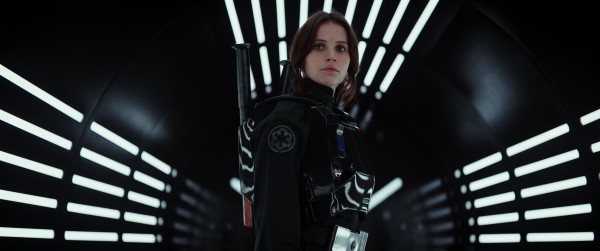
What will you do when they catch you? What will you do if they break you?”





























